News

Online MSW Candidate and C3I intern Jessica Lewis penned an OpEd for Baptist News Global. Within my role as a social work intern at The Center for Church and Community Impact, I recently led a team of individuals as we conducted an asset map in Falls and McLennan counties in the heart of Texas. This asset map helped shed some light on the valuable role rural churches play in addressing the physical and social needs of older adults. Through the information gathered for the asset map of rural churches in the area, we revealed fascinating insights into the services and ministries offered by those congregations and their potential influence on the aging population.
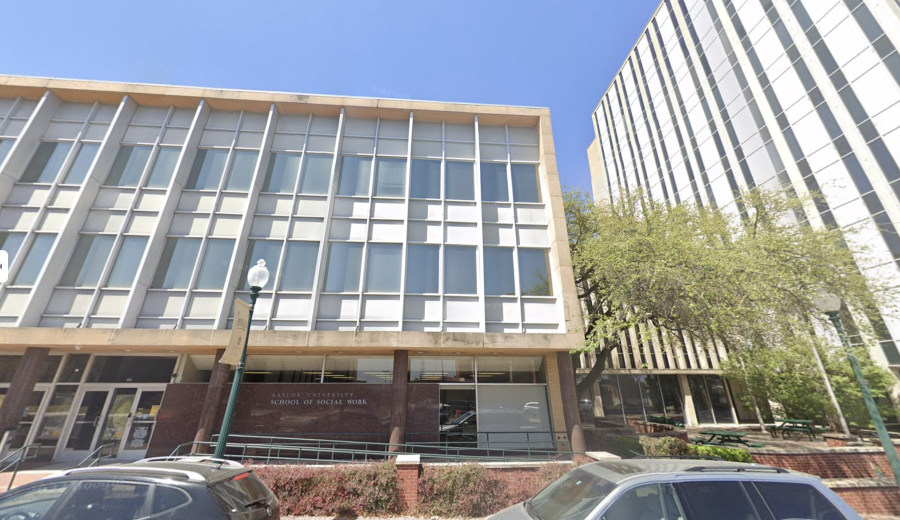
According to the NASW, there are more than 600 accredited schools of social work in the US, and our ranking puts us in the TOP 8% of programs ... In the U.S. News Best Schools for Social Work rankings, we are ranked No. 51 in the nation. We offer the Master of Social Work with residential and online options and the Ph.D. in social work, which is designed to develop leaders and educators who can lead visionary social work education or service programs and conduct original research addressing today’s complex social issues.
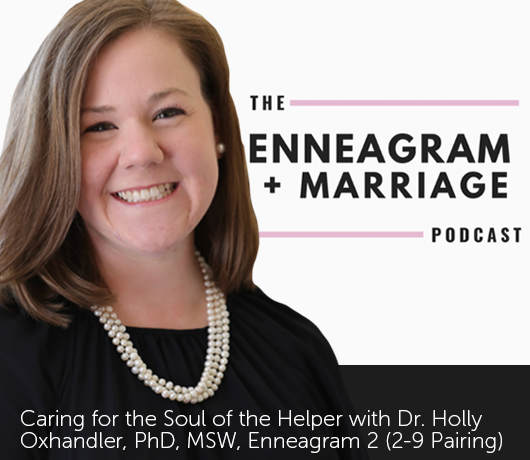
If you’re serving clients, patients, kids, families, students, or helping at work in a fast-paced environment, inviting in restful rhythms in life or marriage may feel audacious and impossible next to your never-ending to-do list. However, those who are natural givers often deeply struggle to thrive because of this tendency to serve until burnout. Here you're invited to lean into practices that will help you to give for the long haul as we chat with Dr. Holly Oxhandler.
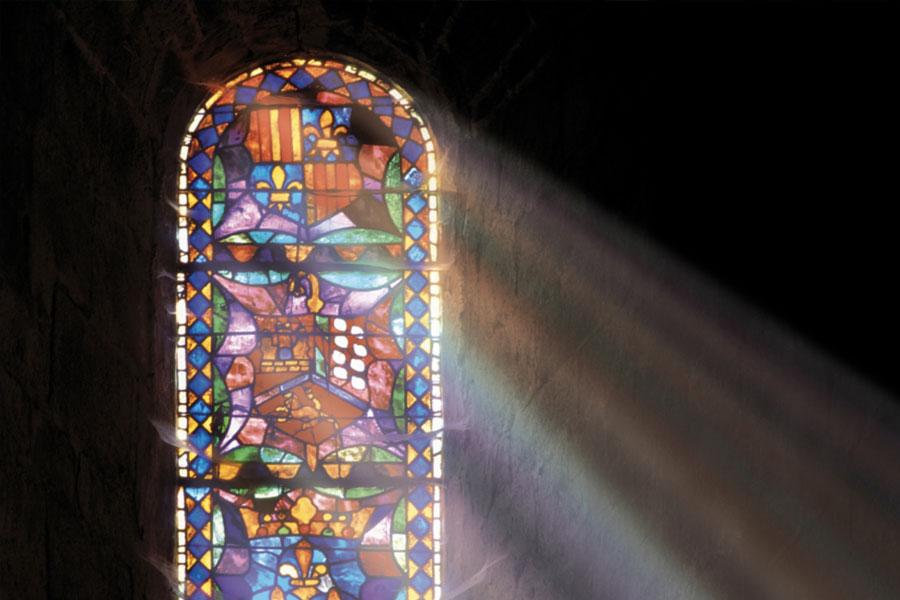
I love that there is a month set aside to embrace my culture, one where I feel appreciated and valued. In September, there are many celebrations that take place in communities, at schools and even churches for Hispanic Heritage Month.
But now that we are a few months past that designated time, I always ask myself why our culture can’t be celebrated year-round. Why is my culture put on the back burner every other month of the year?
There are so many beautiful ways to serve and welcome the Hispanic community during all the other months as well.

I cried Sunday night watching two seemingly different individuals perform one of my favorite songs together. I love music and look forward to the Grammy Awards every year.
While I love celebrating my favorite artists and watching about half the performances, once in a while a performance stands out and really moves me. One of the most iconic moments from the Grammys that made such an impression happened 20 years ago when I was in fourth grade.

Last week, a little red, three-and-a-half-year-old puppet asked our world how we were doing, and it turns out we needed someone to ask. We were honest with our answers, and it became national news. Elmo’s question on X garnered over 40,000 responses and roughly 182.3 million views. While some posts were positive, most were brutally honest about negative feelings of stress and anxiety, depression and despair. As Elmo’s post became national news, outlets referred to the responses as a “social media trauma dump” and “social media dread.” Even the President of the United States weighed in, saying, “I know how hard it is some days to sweep the clouds away and get to sunnier days. Our friend Elmo is right: We have to be there for each other, offer our help to a neighbor in need, and, above all else, ask for help when needed. Even though it’s hard, you’re never alone.”
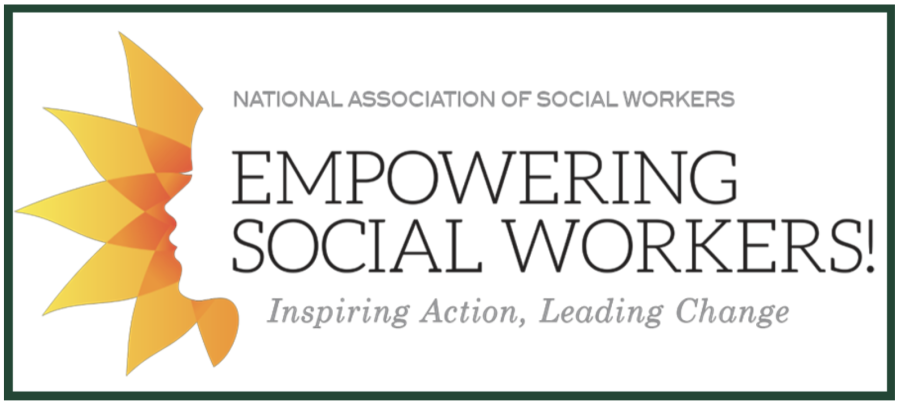
People become social workers because they have a strong desire to help others. Social workers have a hearty sense of social justice and follow a Code of Ethics that calls on them to enhance human well-being and help meet the basic human needs of all people. They are particularly attuned to the needs and empowerment of people who are vulnerable, oppressed, and living in poverty.
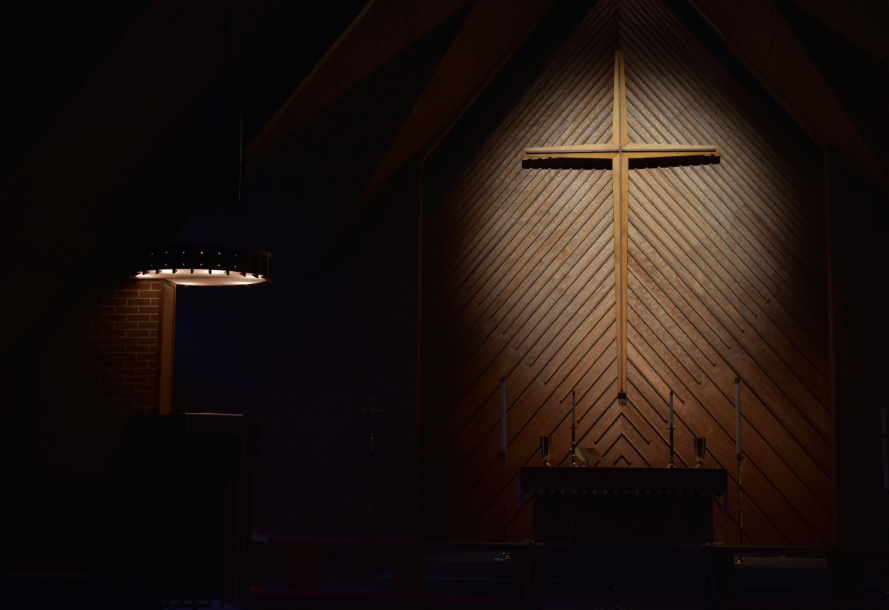
Before she came to know Baylor as a student, Lucy Huh, a doctoral candidate in Baylor’s Garland School of Social Work, was first introduced to Baylor through the late Diana R. Garland – the namesake and inaugural dean of Baylor’s School of Social Work – and her pioneering research on clergy sexual abuse of adults. Clergy sexual abuse occurs when a person with religious authority intentionally uses their role, position and power to sexually exploit a congregant. As a survivor-advocate of clergy sexual abuse, Huh found a home to pursue her own research at Baylor.
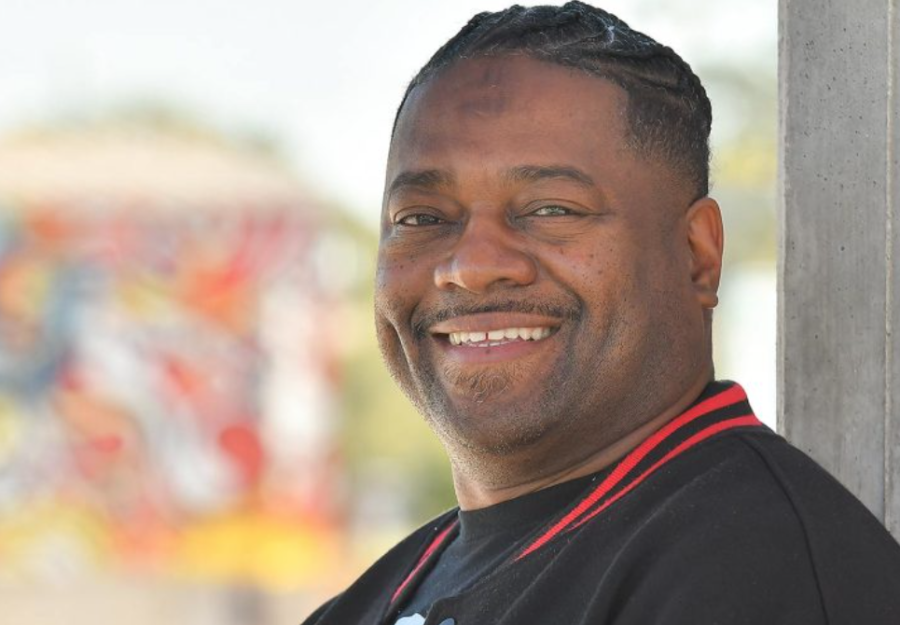
Lead advisor to the president, Methodist Children’s Home Part-time staff, First Methodist Church of Waco Founder, motivational speaker, rapper and trainer, MovementUP LLC...Ahmad Washington advises, preaches and ministers to youth and raps to his own music. Sometimes he does it all at the same time. Weekdays, he serves as lead advisor to the president of Methodist Children’s Home. He’s also a part-time staff member at First Methodist Church of Waco. And in between, he runs his own motivational organization, MovementUP LLC, emphasizing positivity and connection between students and teachers.
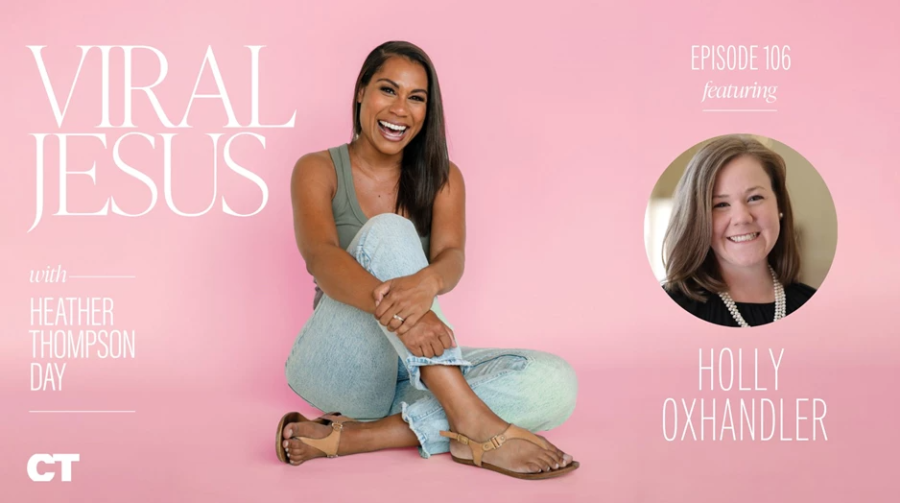
PODCAST: Caregivers are prime candidates for burnout, but social worker Holly Oxhandler says we find healing when we honor God’s image in ourselves and those we serve.
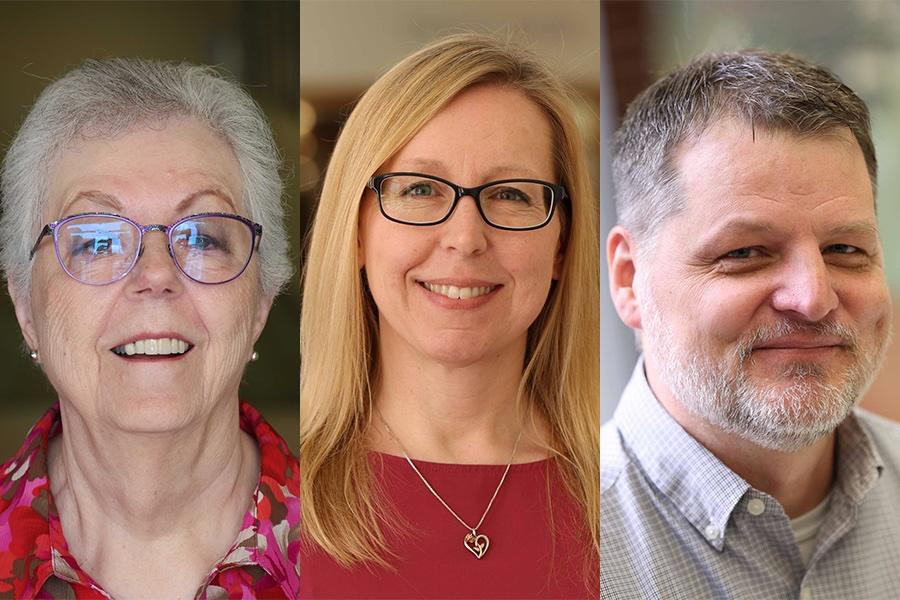
WACO, Texas (Dec. 11, 2023) – Baylor University has been awarded a $1.25 million grant from Lilly Endowment Inc. to establish an interdisciplinary project that focuses on helping congregations embrace young people with disabilities, mental health challenges and chronic illnesses.

As Jesus and the disciples continued on their way to Jerusalem, they came to a certain village where a woman named Martha welcomed him into her home. Her sister, Mary, sat at the Lord’s feet, listening to what he taught.
But Martha was distracted by the big dinner she was preparing. She came to Jesus and said: “Lord, doesn’t it seem unfair to you that my sister just sits here while I do all the work? Tell her to come and help me.”
But the Lord said to her: “My dear Martha, you are worried and upset over all these details! There is only one thing worth being concerned about. Mary has discovered it, and it will not be taken away from her” (Luke 10:38-42 NLT).
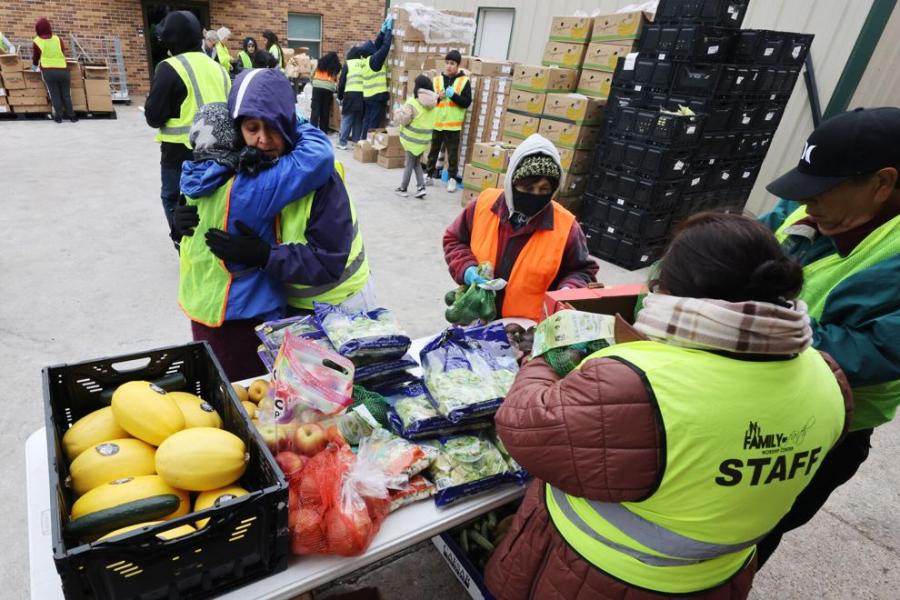
The Sustainable Communities and Regenerative Agriculture Project Collective, a group of climate-smart organizations, is implementing grant-funded projects in Waco aimed toward public food production, education and composting as a means to reduce food waste.
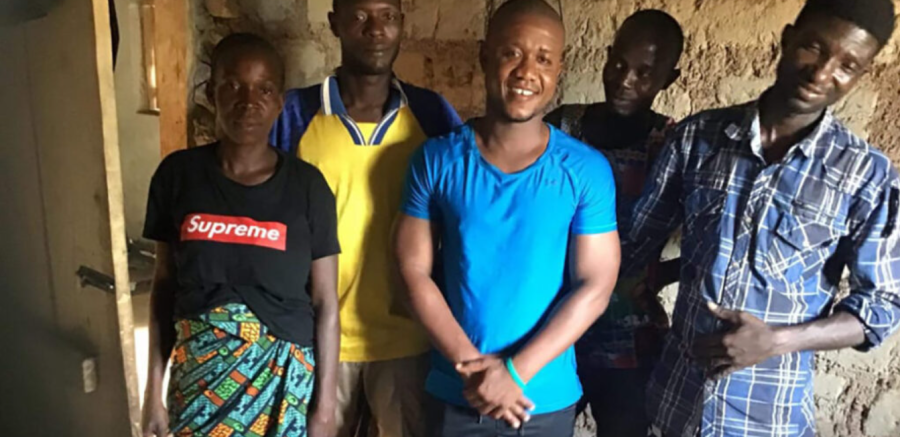
Sixty families in rural northern Sierra Leone are reaping the benefits of a new cash crop, thanks to a ministry led by a Baylor University graduate and supported by the Texas Baptist Hunger Offering.
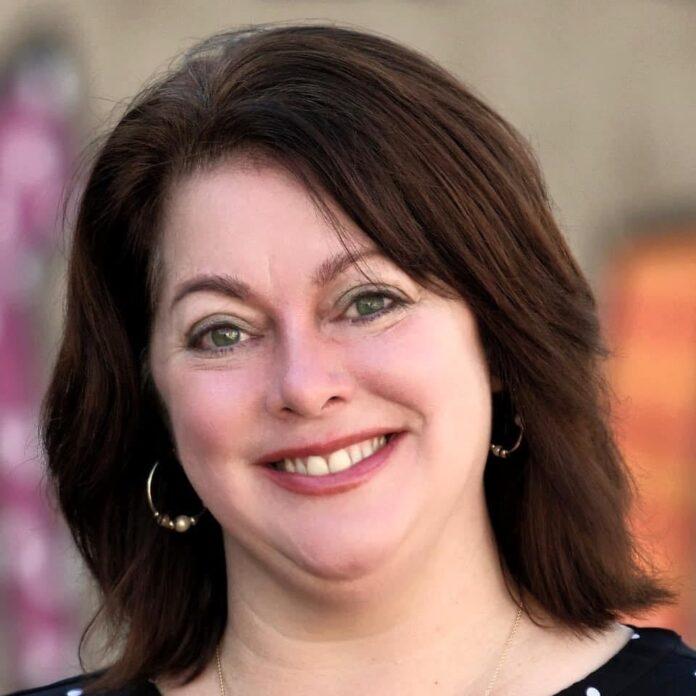
As part of an R1 institution, two professors in the Diana R. Garland School of Social Work shared their experience with research and how it benefits the people around them.
Dr. Jocelyn McGee, assistant professor in the School of Social Work, said her research focuses on Alzheimer’s and dementia patients as well as their caregivers. McGee specifically looks into how having hope affects patients and caregivers’ resilience.
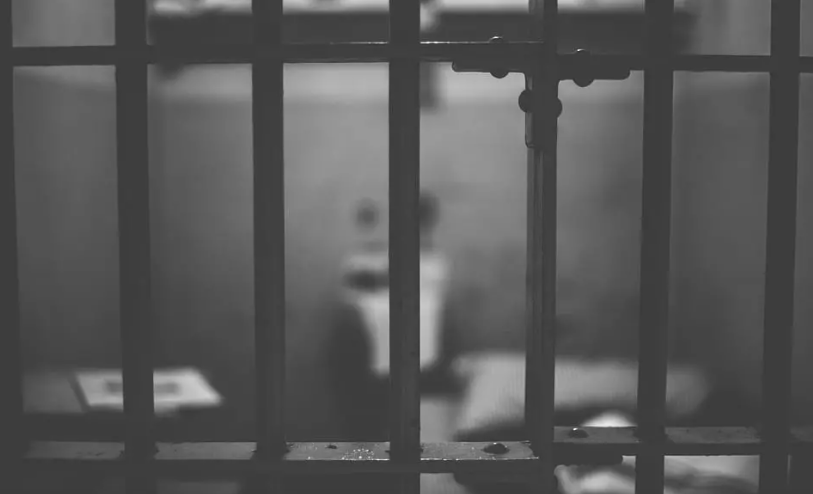
Women represent the fastest-growing population in U.S. institutional corrections facilities. In the past four decades, the number of women incarcerated has increased by more than 475%, rising from 26,326 in 1980 to 152,854 in 2020. Because the majority of imprisoned women are mothers, a conservative estimate indicates that at least one million American children have experienced maternal incarceration, and a substantial portion of them are adolescents.
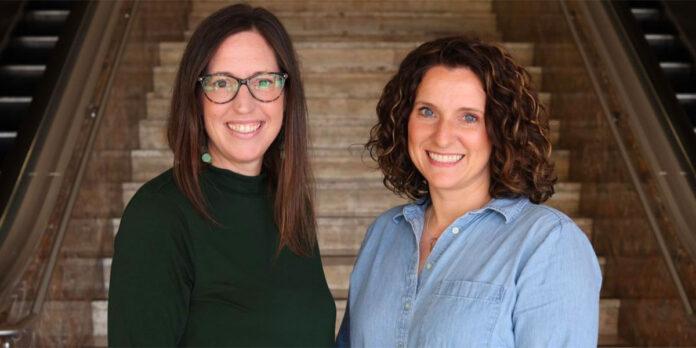
Baylor researchers have been awarded $2.5 million across five years to pursue mental health opportunities for students in the Waco area. The program, Partnering for Heart of Texas Mental Health, will also assist Baylor students working toward their master’s degrees in social work as it funds their education.
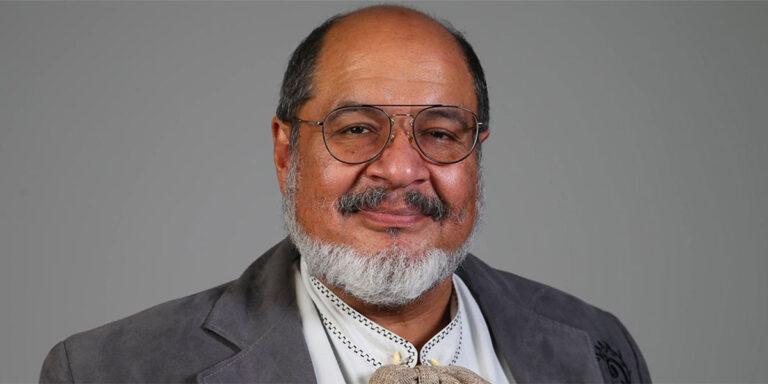
When it comes to more fully understanding religion and faith in Latin America, Dr. Juan Carlos Esparza Ochoa bridges data, social work and theology — and at Baylor, he’s found a collaborative spot to continue decades of research in this area.
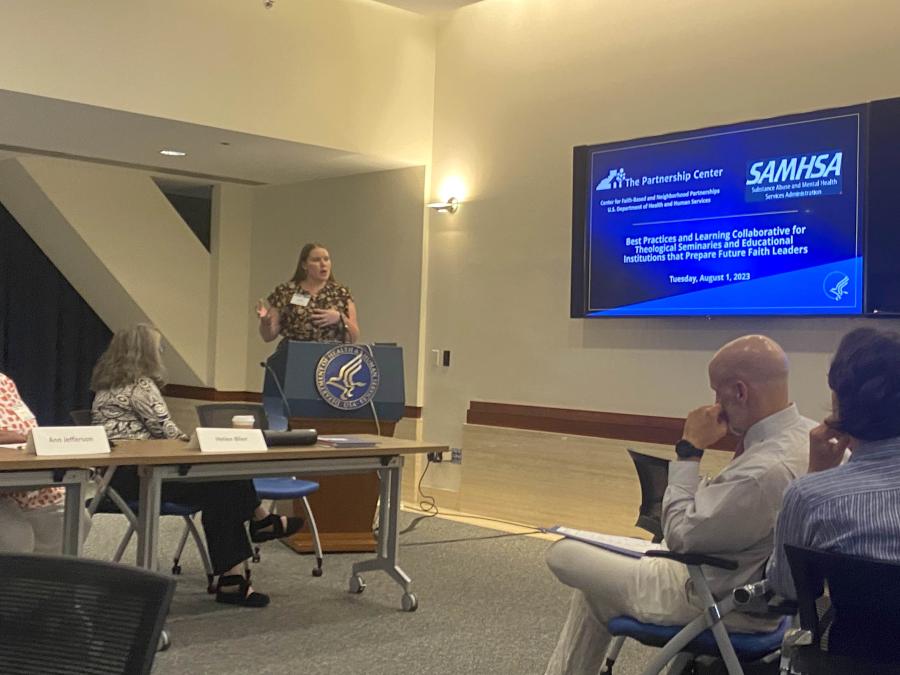
As researchers and leaders in the field of trauma and congregations, staff from the Garland School of Social Work’s Center for Church and Community Impact (C3I) were recently invited to present research findings at a meeting hosted by the U.S. Department of Health and Human Services Center for Faith-Based and Neighborhood Partnerships and the Substance Abuse and Mental Health Services Administration.
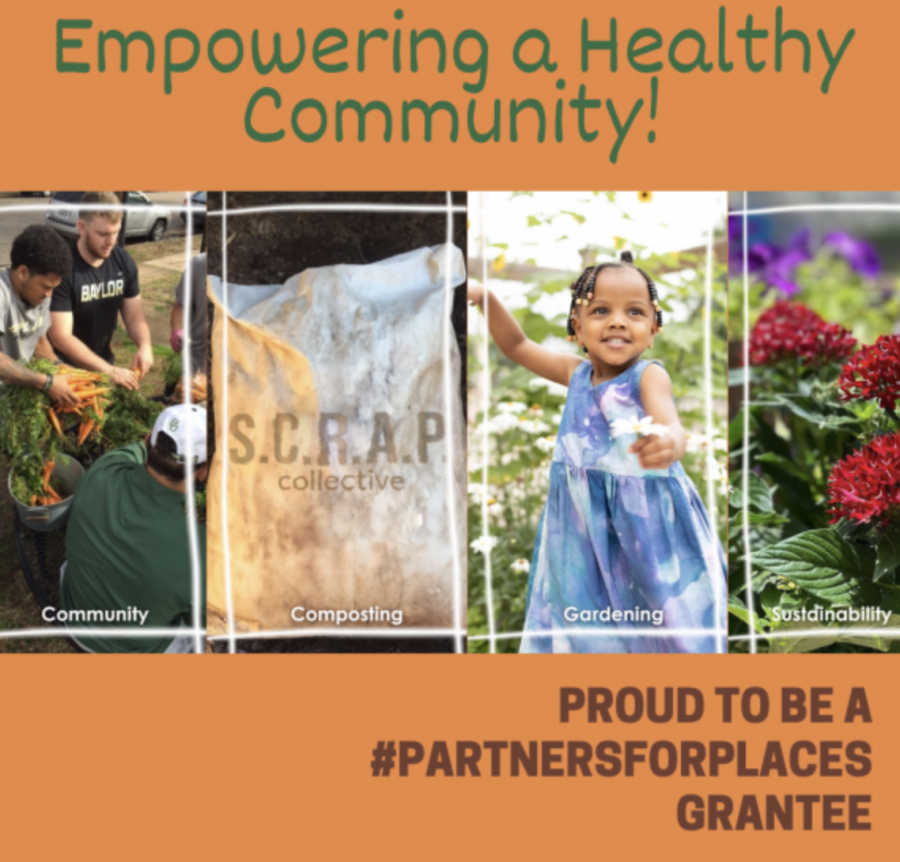
WACO, Texas - July 31, 2023 - PRLog -- A new collective, S.C.R.A.P. (Sustainable Community and Regenerative Agriculture Project), has received a $150,000 grant from The Funders Network and a matching grant from the the Cooper Foundation. S.C.R.A.P. is growing a healthy, equitable food system in Waco to address issues of food waste, food insecurity, and climate resilience.
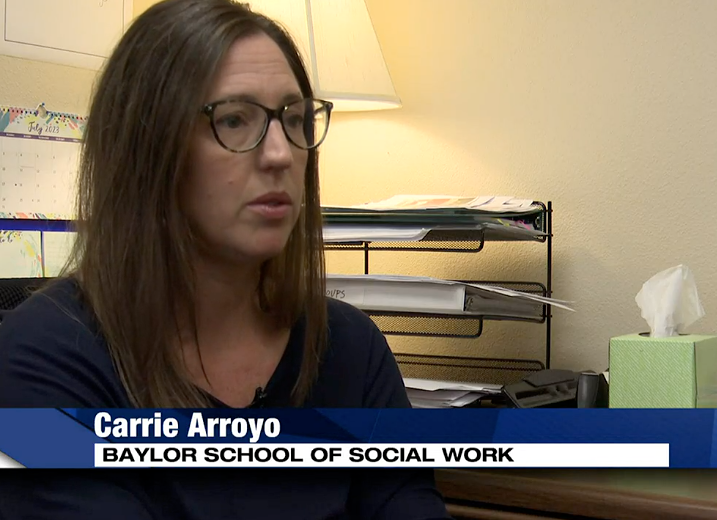
WACO, Texas (KWTX) - Waco ISD and Transformation Waco schools will see more licensed mental health professionals inside campuses in the coming years.
It’s all because of a more than $2.5 million grant from the U.S. Department of Education. However, all of these licensed mental health professionals will be Baylor graduate students.
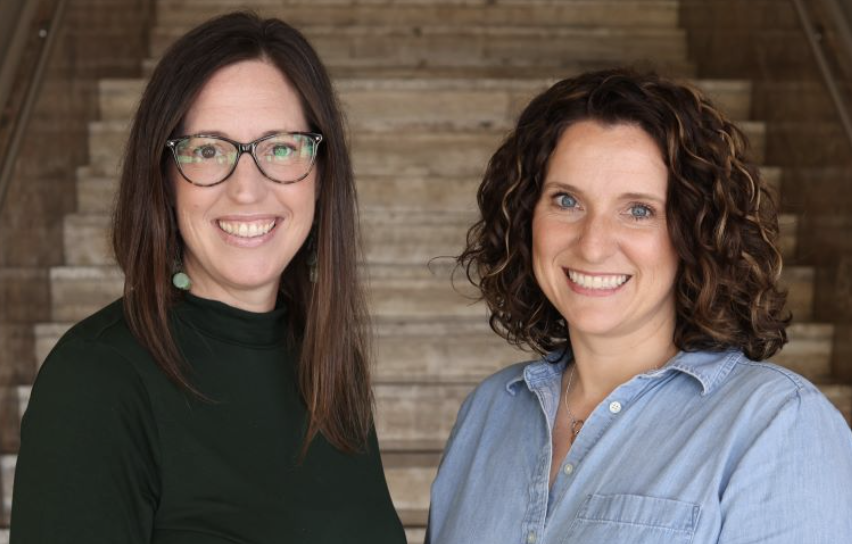
WACO, Texas (July 13, 2023) – Baylor University researchers in the Diana R. Garland School of Social Work have earned a significant federal grant to bolster mental health services to school children by preparing licensed mental health providers for work in schools.
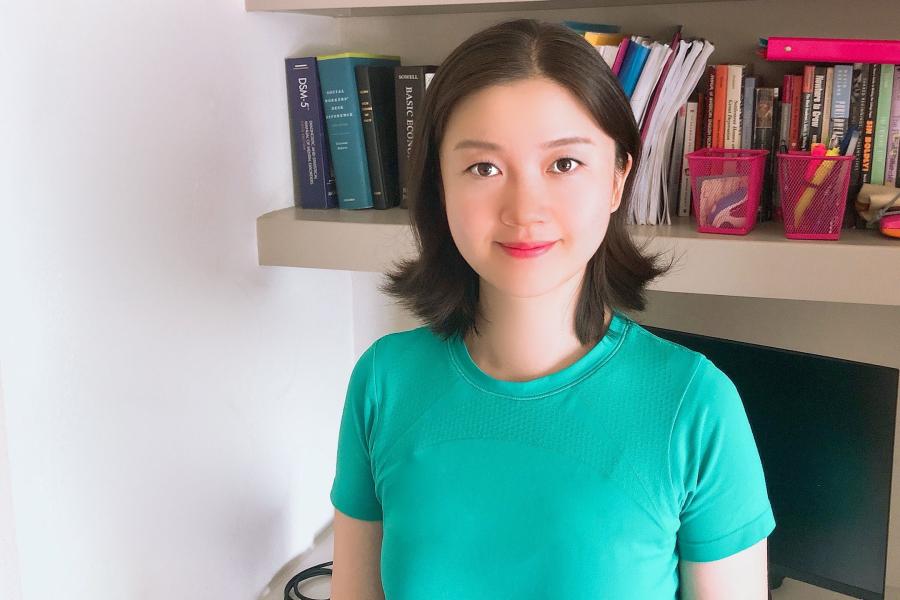
Women represent the fastest-growing population in U.S. institutional corrections facilities. In the past four decades, the number of women incarcerated has increased by more than 475%, rising from 26,326 in 1980 to 152,854 in 2020. Because the majority of imprisoned women are mothers, a conservative estimate indicates that at least one million American children have experienced maternal incarceration, and a substantial portion of them are adolescents.
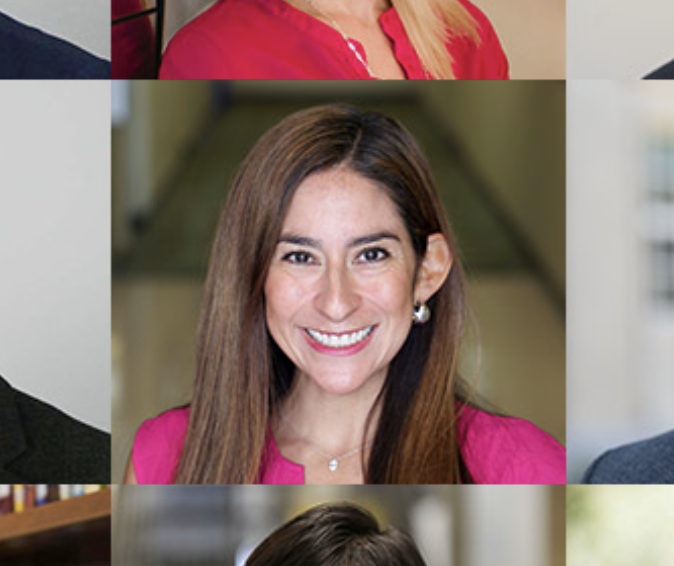
WACO, Texas (May 9, 2023) – Twelve Baylor University professors have been honored with Outstanding Faculty Awards for teaching, scholarship and contributions to the academic community for the 2022-2023 academic year. Our own Luci Hoppe was among the honorees!
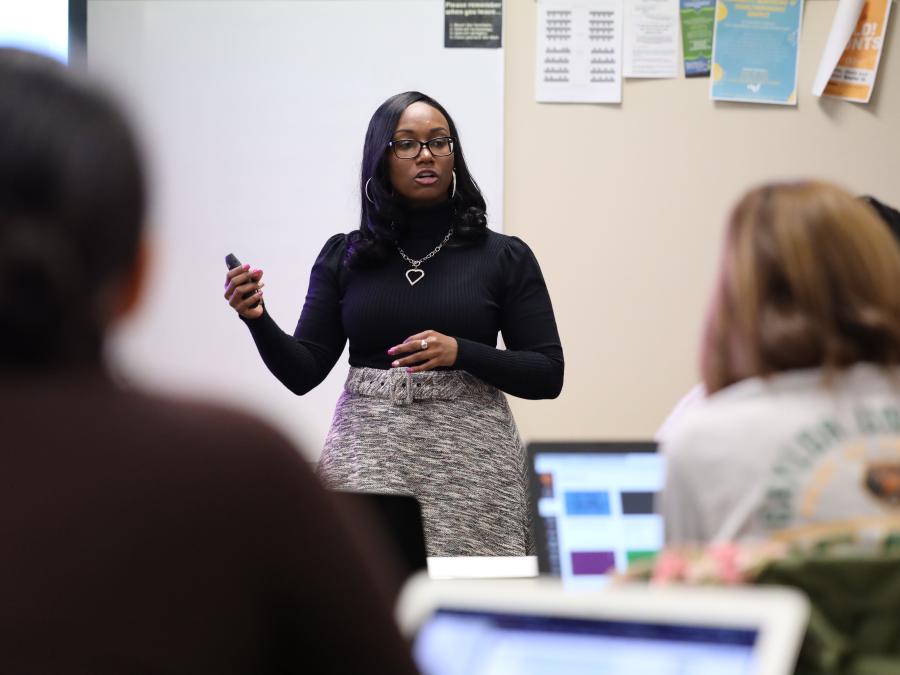
WACO, Texas (May 4, 2023) – Baylor University today announced a $1.5 million gift from Charlie and Cindy Fuller of Woodway, Texas, and their family, establishing an endowed faculty chair position to support innovative research and teaching within the Diana R. Garland School of Social Work.

Faith has long had a contentious relationship with mental health, especially from the side of clinical practitioners. The mental health field itself is not a particularly strong religious incorporation though we know it is important for clients and so counselors need to wrestle with how they plan to practice with integrating spirituality. It is our believe that faith has a place in the clinical counseling session and Christian practices, when done ethically, can promote change and healing.
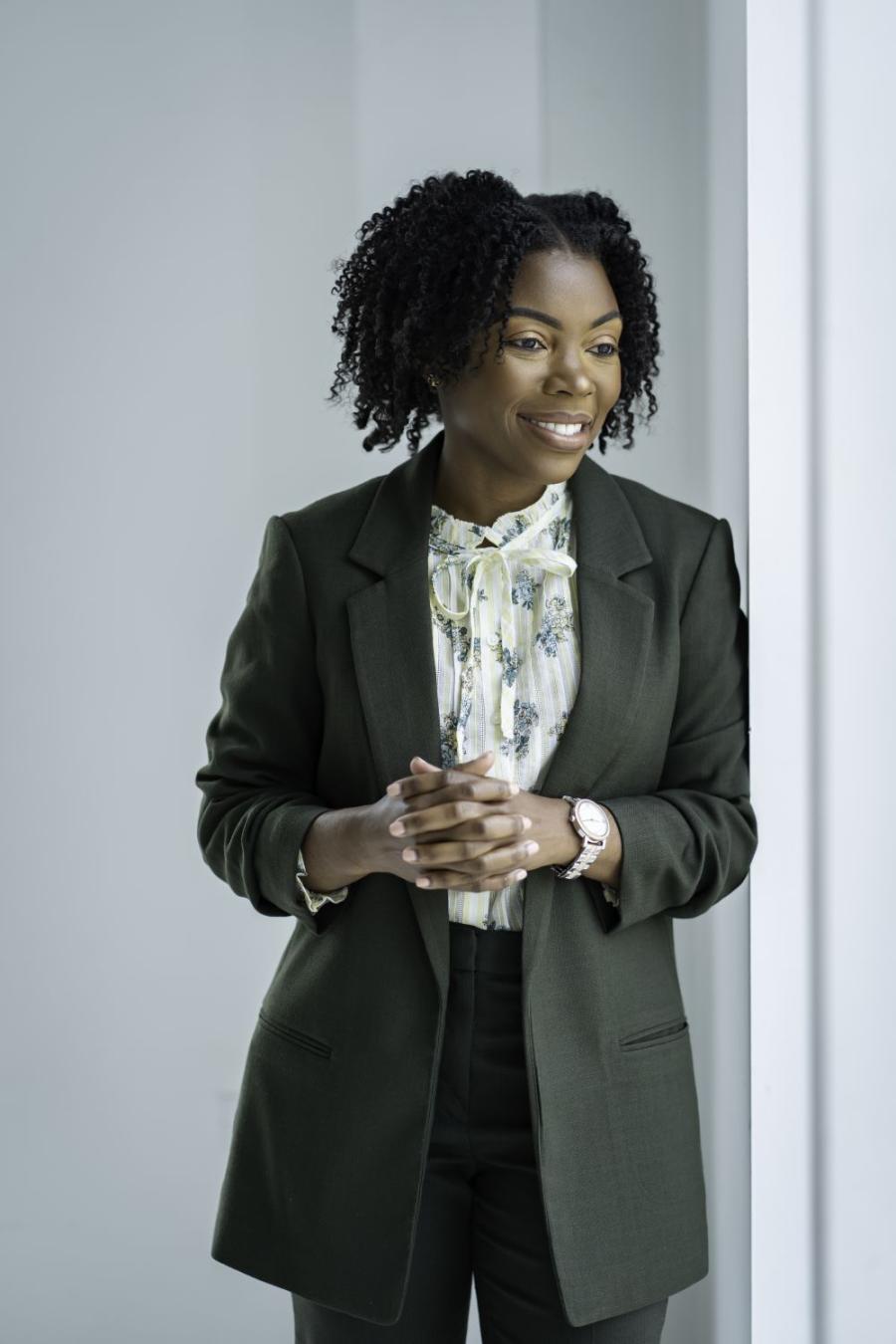
Garland School of Social Work alumna and adjunct professor Bianca Smith opened her own private practice for counseling and consulting online, called iKultivate, in 2022. While pursuing her master’s degree in social work, Smith said she knew she wanted to pursue private practice.
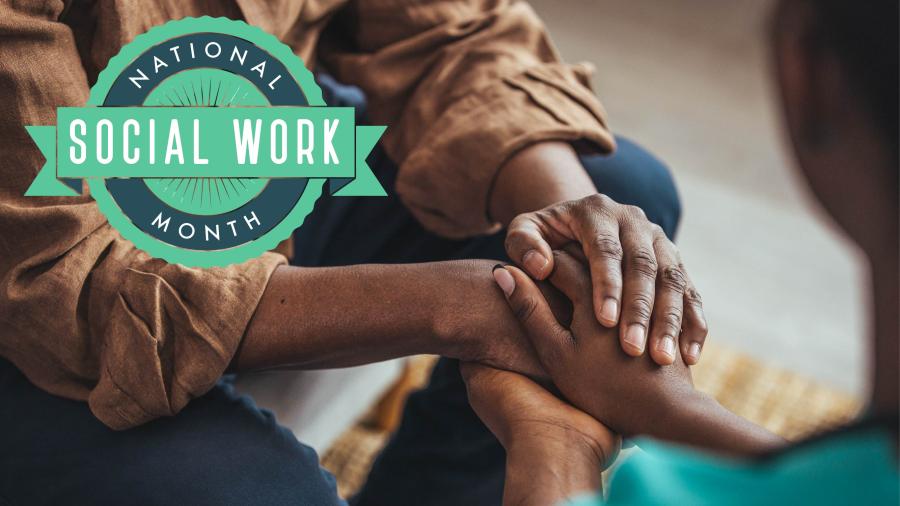
WACO, Texas (March 24, 2023) – National Social Work Month is a time to celebrate the role social workers play in society. Dedicated to breaking barriers that prevent people from achieving their own potential, social workers are essential to improving the well-being of individuals, families, and communities.
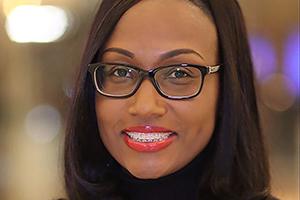
Dr. Brianna Lemmons, an assistant professor at the Diana Garland School of Social Work has authored and collaborated on her first textbook entitled, Social Work Practice With Fathers: Engagement, Assessment, and Intervention, published by Springer Charm. When she learned her textbook would be published, she felt both excited and immensely grateful.
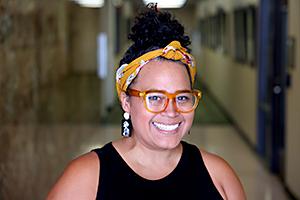
Kerri Fisher, a full-time, senior lecturer at the Garland School of Social Work was recently promoted to the position of associate dean for diversity, equity and inclusion. Fisher will serve the school in a variety of ways in this new role, including bringing vision, and accountability.

Hurt. Assault. Violence. Disaster. Loss. Grief. Death. Trigger. Trauma.
What is our initial reaction to each of these words?
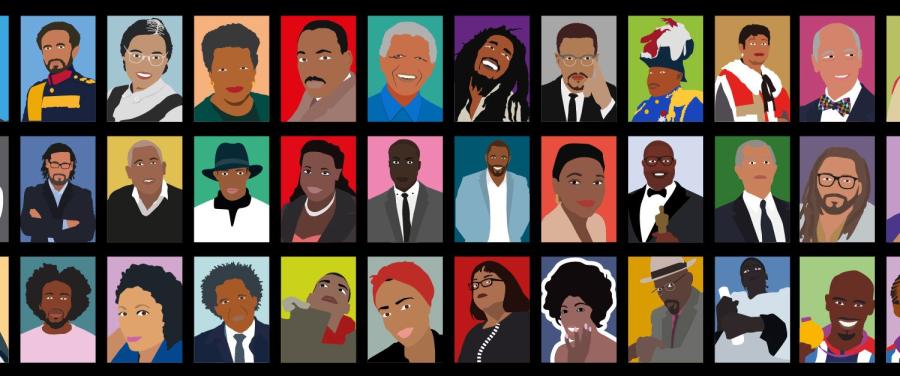
“Why should we talk about Black History Month at our church?” This was a question posed to me by someone at a church I am working with.
I had asked for approval to make weekly posts honoring and celebrating Black History Month on the church’s social media page. This church is in a small, rural, Southern town and has little to no experience talking about race productively. I explained this could be a good starting point to learn about the beauty and uniqueness of the Black community’s culture and rich history. A social media post allows people to determine what level of engagement they would like to have with the information. It is a low-stakes intervention.
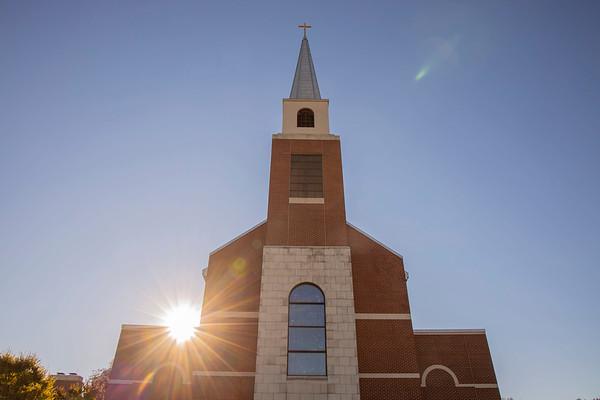
The church is the beautiful, multifaceted body of Christ, made up of imperfect people impacted and often harmed by imperfect people. We as God’s people declare all humans are created in the image of God—reflecting his character to see the world through eyes of love.
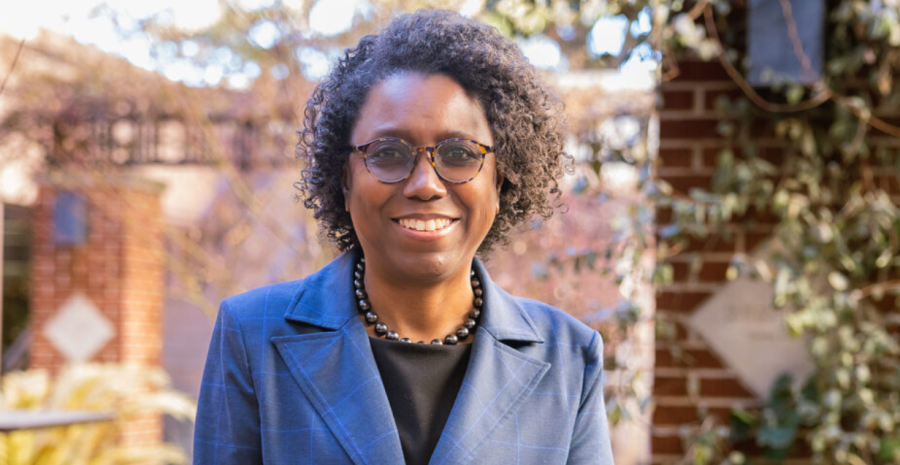
Dr. Stephanie Boddie is a gardener at heart: sowing, cultivating and encouraging the seeds of her students’ critical thinking skills as intentionally as she works the earth in her own garden. She even teaches a class called “Education from a Gardener’s Perspective,” where her students practice introspection through mindful reflection outdoors in a garden.
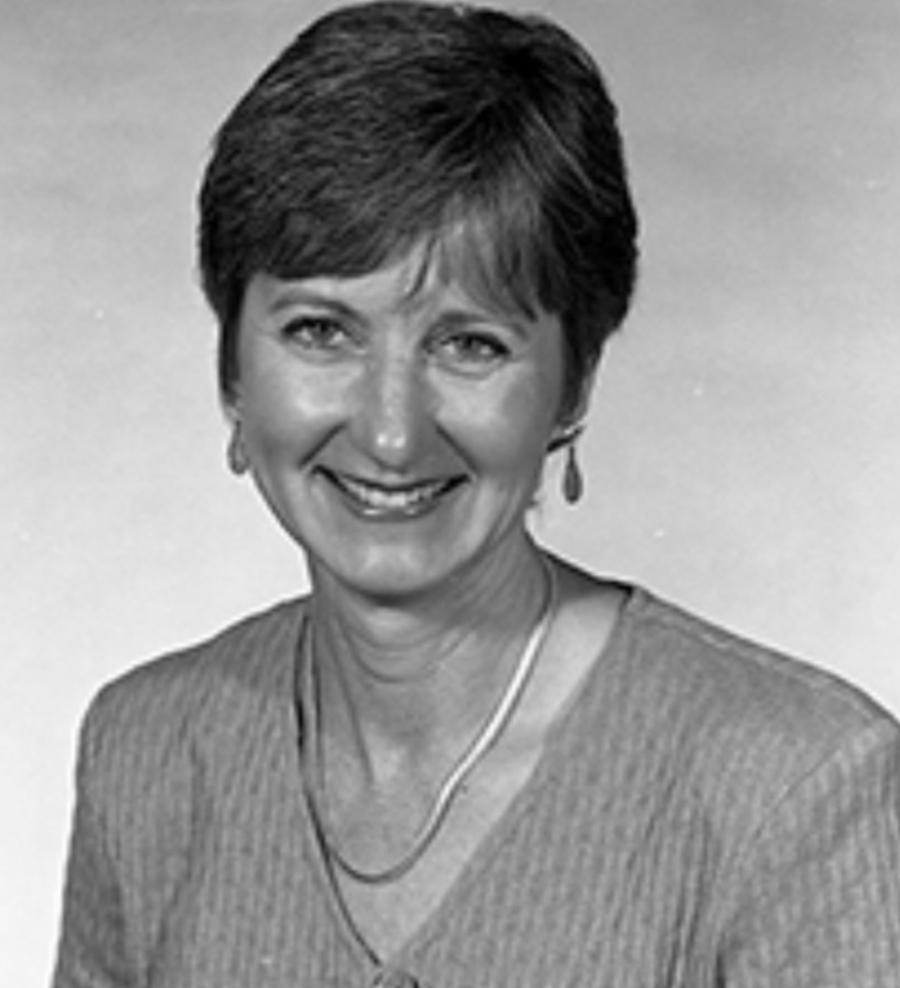
Our founding dean, Dr. Diana S. Richmond Garland, has been recognized posthumously with the National Association of Social Work Pioneers Award. This is the second major award given to Garland by NASW.
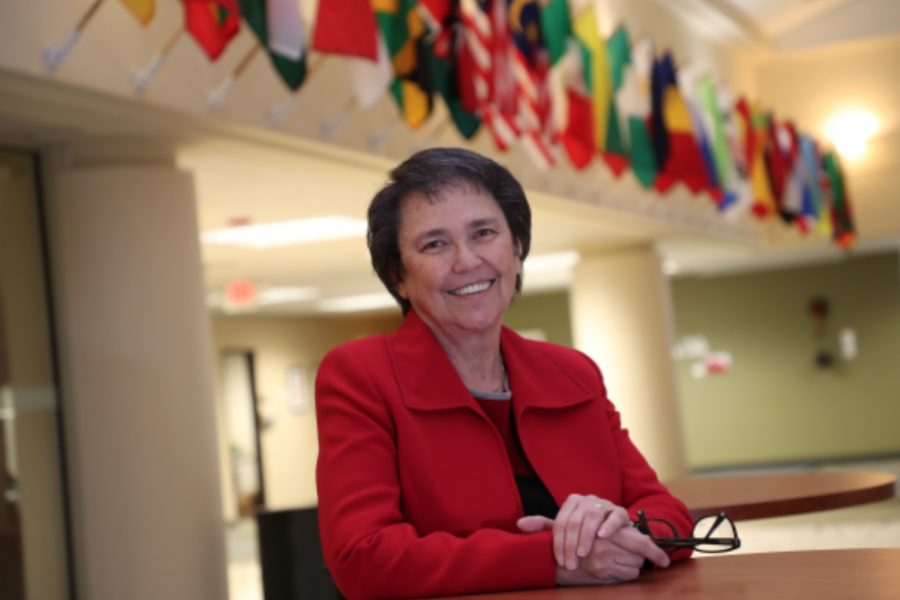
We are surrounded by messages that the holidays are supposed to be perfect—the perfect time with the perfect weather for perfect families to gather, eat perfect meals and exchange perfect gifts while we make perfect memories. What do we do when that doesn’t happen and the expectation is shattered?
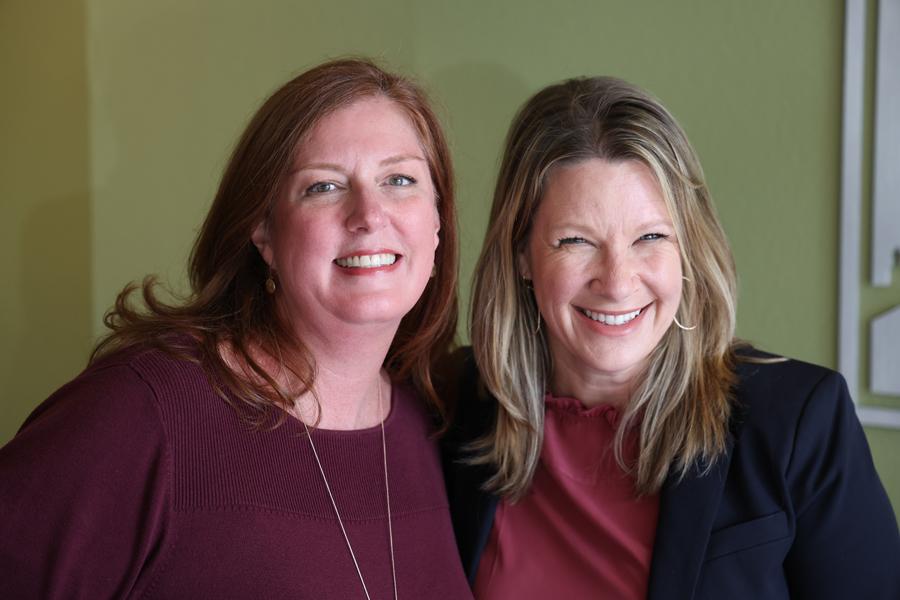
Throughout the vast expanses of Texas, people in both rural and urban communities benefit from behavioral health care professionals, who address the needs of children and adults in challenges ranging from diabetes management to substance abuse. The state, however, faces a challenge—more than 75 percent of counties in Texas qualify as behavioral health shortage areas. Across rural areas, the need is particularly acute, and it grows even more for patients who are Spanish-speaking.
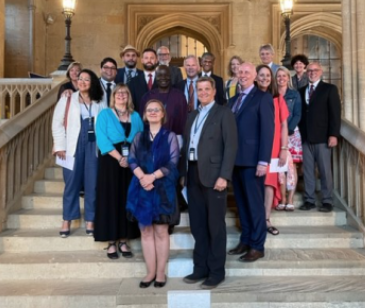
Baptist scholars recently gathered at Oxford University for the 2022 Baptist Scholars International Roundtable (BSIR), hosted by the Baylor University Graduate School, to promote Baptist scholarship among faculty around the world. BSIR is co-directed by Laine Scales, Ph.D., professor in Baylor’s Diana R. Garland School of Social Work, and Baylor graduate João Chaves, M.T.S. ’12, Ph.D. ’17, assistant professor of evangelism and mission at Austin Presbyterian Theological Seminary and associate director for programming at the Hispanic Theological Initiative.
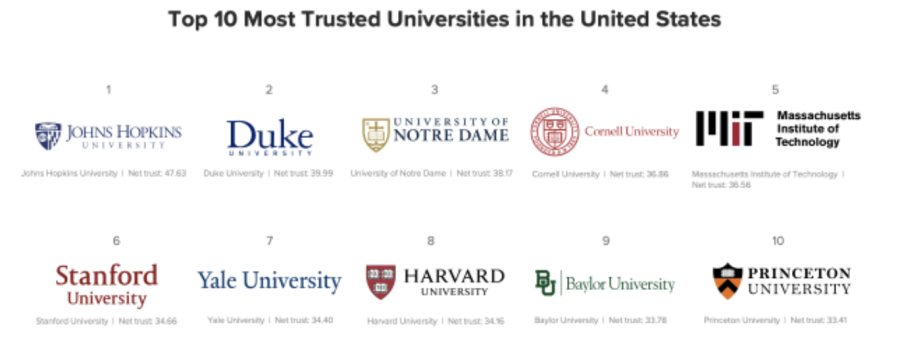
Baylor University was named among the nation’s top 10 Most Trusted Universities, according to global research firm Morning Consult as part of its Most Trusted Brands project. Morning Consult’s Most Trusted Universities report measures public trust in the top 135 doctoral research universities featured in the U.S. News’ 2022 Best National University Rankings and explores how trust varies among diverse groups and different types of institutions.
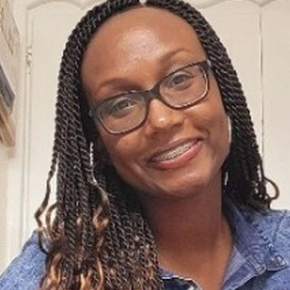
Dr. Brianna Lemmons' scholarship focuses, among other topics, on African American fatherhood, the role of non-resident fathers in family life. She is the co-author of a recent examination of son-in-law and father-in-law relationships in Black families. Dr. Lemmons also founded and leads the Black Female Fatherhood Scholars Network which connects female scholars who are committed to uplifting the Black community through the study of Black fatherhood and families. We asked Dr. Lemmons to share a few reflections in advance of Father’s Day.
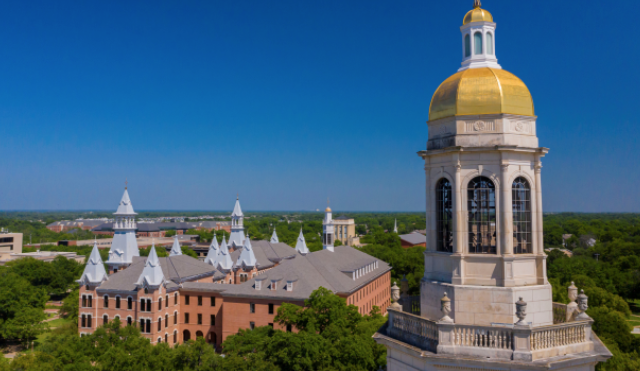
Several Baylor University graduate and professional programs were among those nationally ranked in the 2023 U.S. News & World Report Best Graduate Schools rankings, released March 29 ... In the new Health Schools rankings, U.S. News ranked Baylor’s social work graduate programs in the Diana R. Garland School of Social Work at No. 51 and Baylor’s Master’s of Public Health (MPH) degree program with specializations in community health, environmental health science or epidemiology in the Robbins College of Health and Human Sciences, at No. 79.
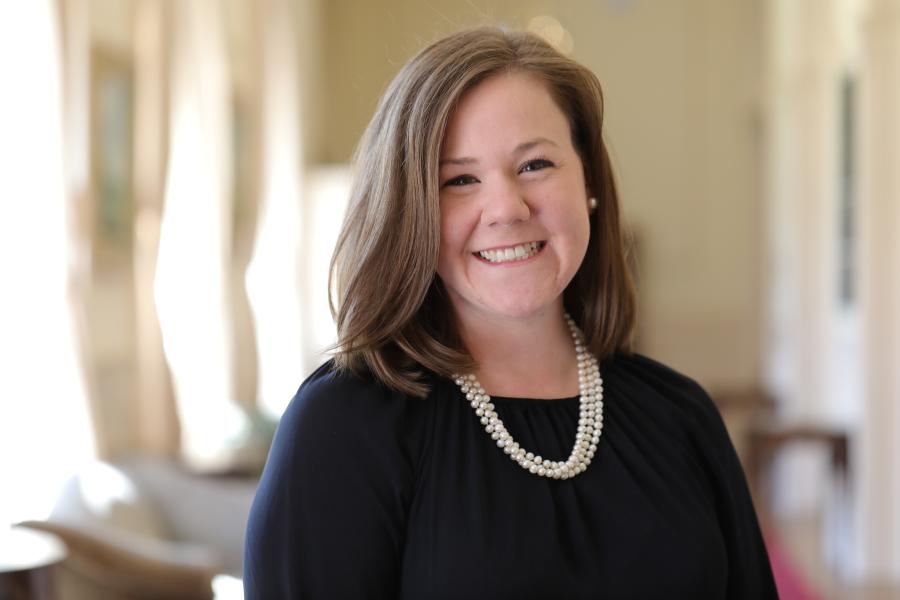
WACO, Texas – In her new book, The Soul of the Helper, Holly Oxhandler, PhD, LMSW, combines solid research with practical application to show how giving attention to both our mental and spiritual health can lead to greater healing. Oxhandler, associate professor and associate dean for research and faculty development at Baylor University’s Diana R. Garland School of Social Work, focuses specifically on the needs of those in helping positions (parents, pastors, teachers, healthcare workers, caregivers...), who are currently experiencing alarming levels of burnout due to the stress of the pandemic.
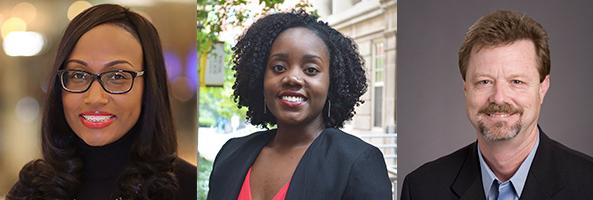
What does a healthy relationship look like for a Black son-in-law and his father-in-law?
A study aims to answer that question and was published in “Psychology of Men & Masculinities” by University of Maryland School of Social Work’s (UMSSW) Assistant Professor Ericka M. Lewis, PhD, MSW, with Professor Michael E. Woolley, PhD, MSW, and Baylor University Assistant Professor Brianna P. Lemmons, PhD, MSW.
Studies on in-laws are far and few between, less so for male in-law relationships, and even less so for Black male in-laws, Woolley said. This study is a way to lift Black voices and examine those roles.
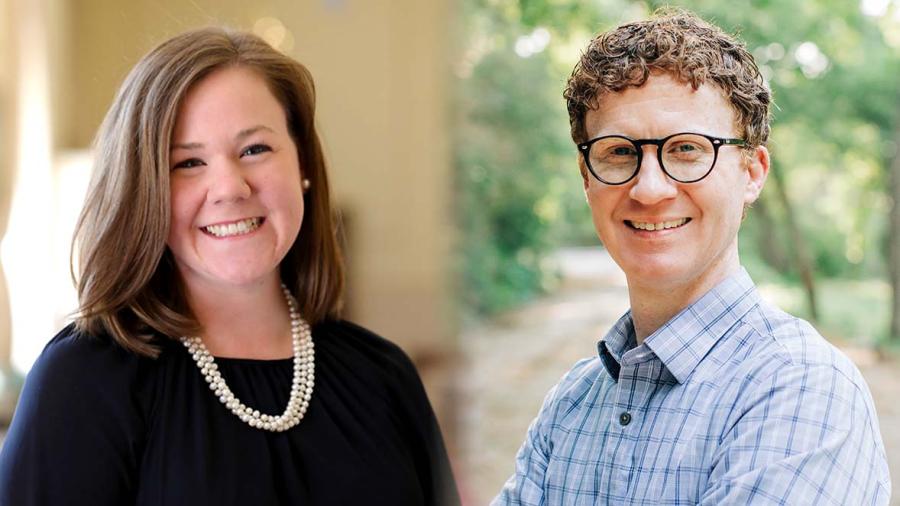
Drs. Holly Oxhandler and Clay Polson, associate professors in the Diana R. Garland School of Social Work at Baylor University, have been awarded an $843,647 grant from the John Templeton Foundation as a subaward through the University of South Alabama. Oxhandler and Polson are serving as co-investigators of the overall Spiritual and Religious Competencies Project, and are leading one of the team’s four sub-projects. Specifically, the two are seeking to understand faculty views, behaviors and needs regarding graduate education training in religious and spiritual competencies in an effort to better serve those seeking mental health treatment.
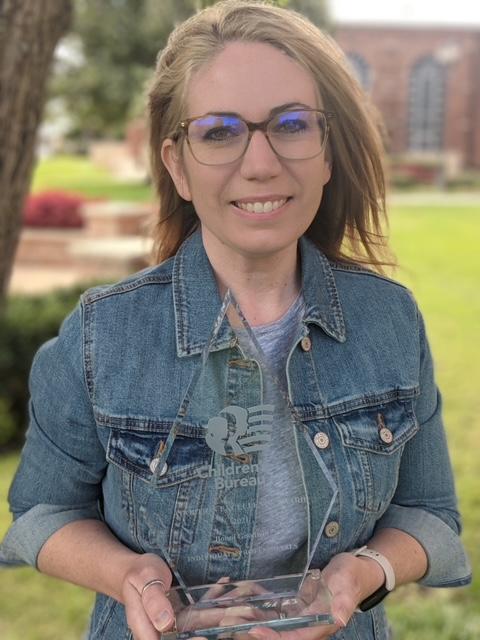
Dr. Bonni Goodwin, a graduate of the GSSW PhD program, was recently selected to receive the 2021 Adoption Excellence Award by the Children’s Bureau for her work and research in adoption. Dr. Goodwin graduated from Baylor with her PhD in December 2020. Before her time at the GSSW, she was working with an adoption agency in Oklahoma. It was there she realized several ways in which the field of adoption could be improved.
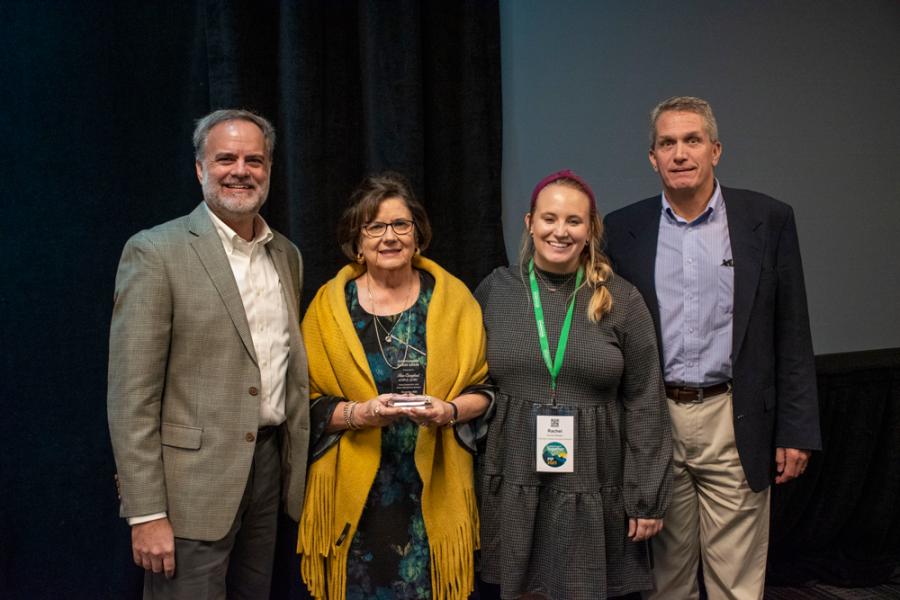
The Texas Department of Family and Protective Services (DFPS) has awarded its 2022 Partners in Prevention Outstanding Leader Award to Pam Crawford, LCSW-S, LCPAA of Presbyterian Children’s Homes and Services. Crawford, who has served children and families with PCHAS for over 20 years, received the honor November 4 at the Partners in Prevention Conference hosted by DFPS in Austin.
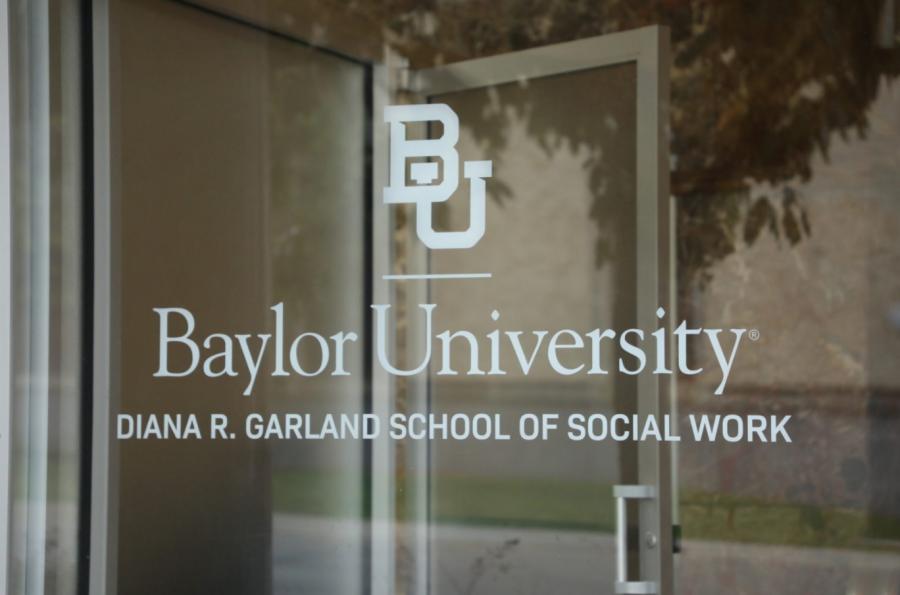
The Center for Church and Community Impact (C3i) program, housed in the Diana R. Garland School of Social Work, strives to research and provide curriculum for congregations on community issues.
Dr. Gaynor Yancey, director of C3i, dives deeper into the program, explaining the research, work and importance of having a social work presence within congregations.
“Congregations, for me, are the heart of what we are about and certainly what our faith is about,” Yancey said. “But along with that comes the purpose of the C3i, [which] is to come alongside congregations to strengthen them in the way that they feel God directs them to do their work.”
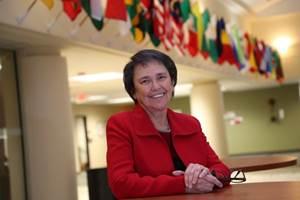
From The Pioneer Woman Lifestyle Blog, featuring Dr. Helen Harris—
It's never easy to know what to write in a sympathy card for a friend, family member, or coworker. But even if you feel uncomfortable or aren’t sure what to say, that doesn’t mean you should procrastinate or not say anything at all.
"The most important thing is to acknowledge the other person’s loss. People who are grieving need to feel connected and know they’re not alone," says Helen Harris, EdD, who teaches about and researches loss and grief at Garland School of Social Work at Baylor University. "Even if we’re not able to be there physically, a card acknowledges that a person’s pain and loss matters to us."
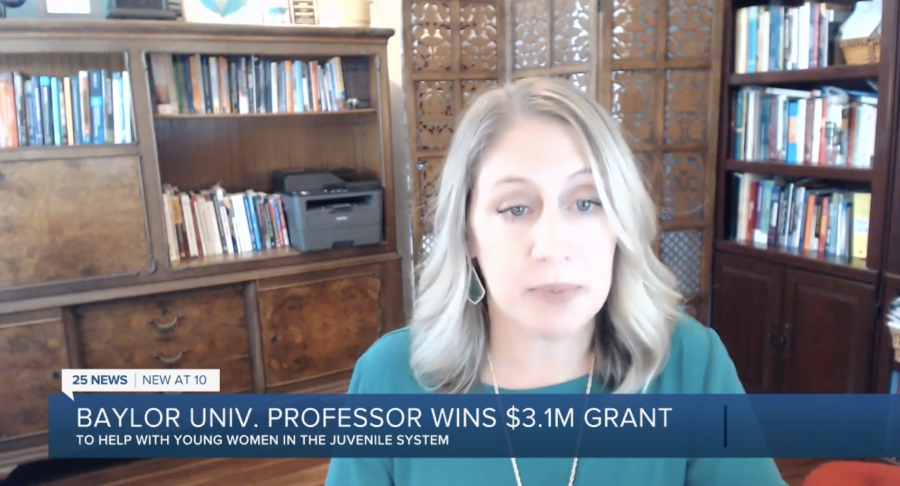
WACO, Texas — A Baylor University professor is putting her boots on the ground to get young women in the juvenile system back on the right track.
"I hope that this work that we're doing will help empower these youth to meet the goals and the hopes and the dreams that they have in their life. I want to do work that's meaningful, practical and that will actually once you do the research help this population," says Dr. Danielle Parrish, a professor of social work with Baylor University's Houston campus.
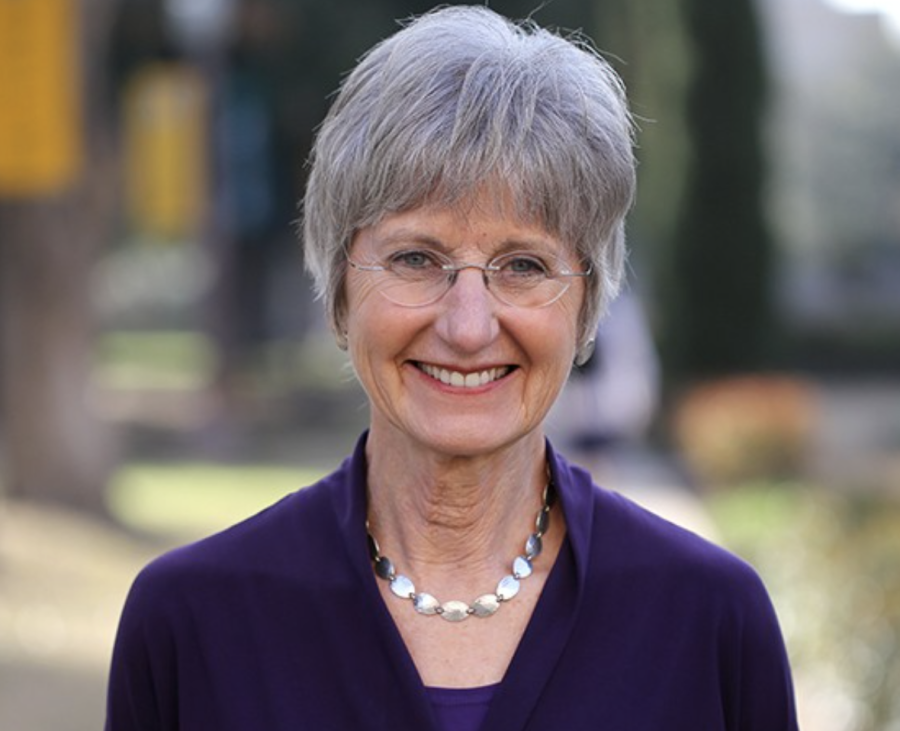
Siblings Sarah and John Garland share an intangible inheritance from their late mother that transcends kinship. Sarah, a journalist, and John, a pastor, say their mother, Diana Garland, a Baptist social work educator with wide-ranging influence, pursued a commitment to justice and mercy that inspires them in their life and work. Sarah Garland “There’s not a lot required of us, the Bible says, but one (requirement) is to do justice,” said Sarah Garland, a New York-based writer and editor, during a Sept. 25 address to her home church in Louisville, Ky. Her mother “always appeared to be doing and doing” justice, she observed. “I feel both inspired and daunted.”
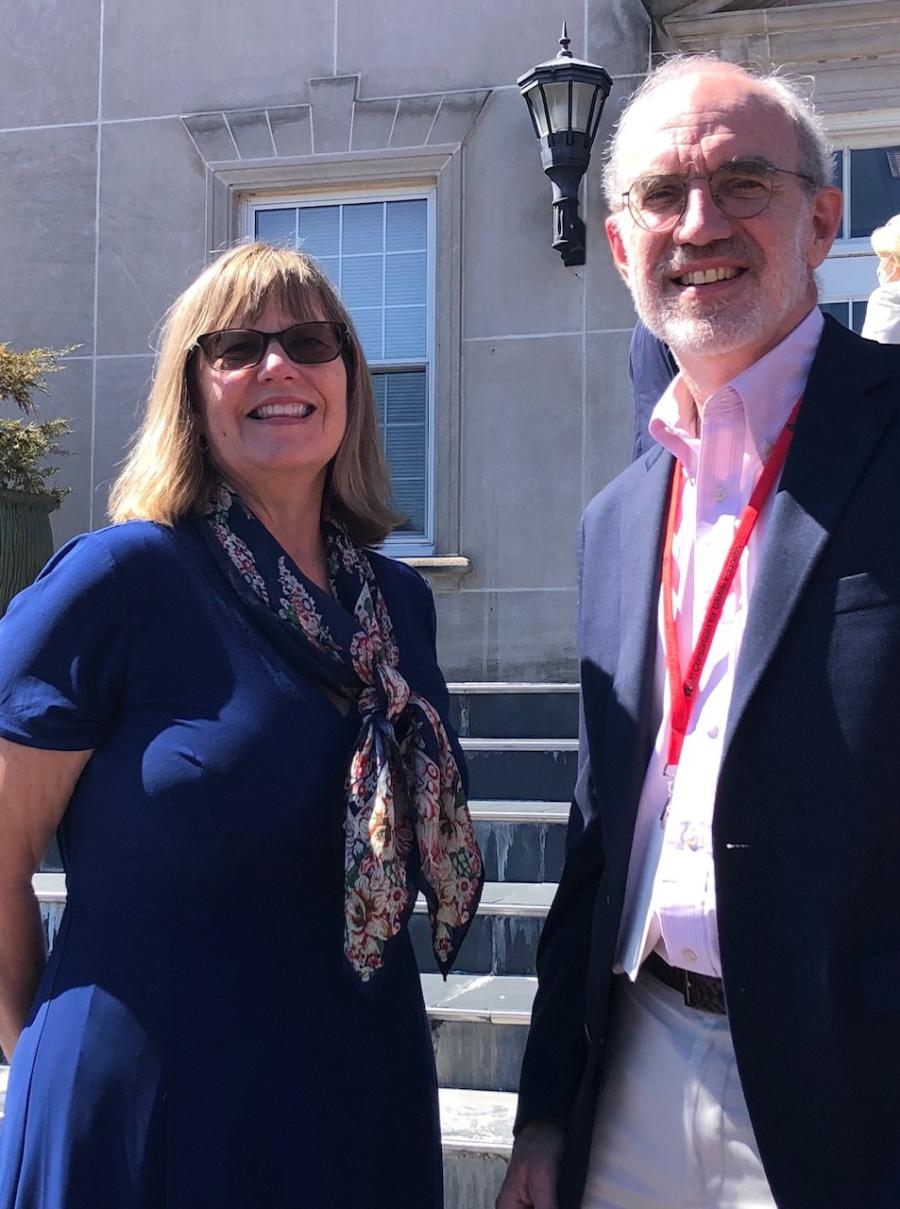
When a group of Baptist scholars came together virtually Aug. 9-11 for a roundtable on “Baptists and the Kingdom of God,” they did not know that several in the group had personal experience to speak to one of the presentation topics: apartheid in South Africa. The Baptist Scholars International Roundtable is housed at Baylor University and supported by member institutions invested in the formation of global-minded Baptist leaders. The group’s focus is intergenerational, transnational development in which BSIR fellows respond to the work of seven scholars selected to participate.
As we are just over a week away from Father’s Day, this Month on the Central Texas Leadership Series, a compelling conversation between Dr. Brianna Lemmons, President of The Black Female Fatherhood Scholars Network, Drexel King, one of the founding members of Black Fathers of Waco and Marlon Jones, Director of Fatherhood Services for STARRY – a nonprofit organization offering services in Counseling, Family Support, Foster Care and Adoption. LISTEN by clicking the title.
WACO, Texas (May 25, 2021) – Danielle Parrish, Ph.D., professor in the Diana R. Garland School of Social Work at Baylor University, has been awarded a $3.1 million grant by the National Institutes of Health to study the efficacy of risk reduction intervention efforts for young women age 14-17 in the juvenile justice system. The grant will be dispersed over five years, beginning May 2021. The project, titled CHOICES-TEEN: Efficacy of a Bundled Risk Reduction Intervention for Juvenile Justice Females, is an effort to fill gaps in care for at-risk young women in the juvenile justice system. "I'm really excited and honored to have this opportunity to pursue this research that I’ve had on my heart for many, many years," Parrish said. "This grant will provide the resources to implement a randomized controlled trial to test the efficacy of an intervention that I hope will be able to be used more widely in the U.S. and fill the gaps in services for this population."
As the coronavirus began its transmission blitz last spring, the Taya and Chris Kyle Foundation (TACK-F) was forced to scale back its marriage-based programming. Even with a smattering of retreats and virtual group counseling sessions, the waitlist for in-person programs ballooned. Couples whose significant other is a first responder or serves in the military, or is a veteran were clamoring for help. “The need has not gone down, I cannot stress that enough,” said Corie Weathers, national clinical director of programming at TACK-F and a licensed professional counselor. “Their world did not halt — it got more complicated.” Problems in a marriage that once simmered before COVID-19 were brought to a boil in the last year. “Resentment is going up. Anxiety is up. Exhaustion is way off the radar,” she said. Combined with a “service lifestyle,” relationships already teetering on the edge of failing face slim odds of surviving. “Your marriage is constantly under assault by the career,” said Brad Sims, an investigator and bomb technician with the Fort Worth Fire Department. A career first responder and Army veteran, he and his wife, Kelli, a pre-school educator, nearly filed for divorce six years ago.
Words have power; they can carry freedom or they can carry weight. We often forget that power also resides in names. Our names are what we closely identify with in places of comfort and places of estrangement. Knowing someone’s name can allow them to feel safe and cared for, just like forgetting someone’s name can make someone feel shame and embarrassment. The adjectives or labels that we ascribe to someone also carry weight. When talking to or about someone who is in a vulnerable state, the words used are particularly important. For example, there is a common tendency to call individuals who are on the journey out of addiction and in recovery as “addicts” or “alcoholics.” The intentions might be pure, but the verbiage is haunting. “Hi, my name is Lacey, and I am a new creation in Christ Jesus.” This statement was a hopeful reminder of a new identity I received when accepting the gift of salvation.
Grief is a part of life for every person and, therefore, is a natural part of life for every church community. Two of the most foundational duties of those in ministry are to walk alongside those who are grieving and to conduct funerals for the deceased and their loved ones. While the church is no stranger to grief, the COVID-19 pandemic has presented new challenges in how the church approaches and supports those grieving the loss of loved ones.
The COVID-19 pandemic has affected almost every aspect of life, including education and literacy. Literacy Texas and Baylor University Diana R. Garland School of Social Work released survey results last week that identified barriers — lack of technology and education — created by COVID-19 impacting Texas nonprofit adult literacy providers and students. Leaders of the Literacy Council of Tyler participated in the survey. Though researchers determined that lack of access to technology is a major hurdle in literacy training, they identified a passionate and resilient community of professionals and volunteers committed to Texas’ adult literacy achievement.
DALLAS, TEXAS ( March 24, 2021) Literacy Texas and the Baylor University Diana R. Garland School of Social Work released survey results today, identifying barriers created by COVID-19 impacting Texas nonprofit adult literacy providers and students. As with education, mental health, and other key human learning services, the so-called “Covid Slide” has significantly impacted literacy training. Though researchers determined that lack of access to technology is a major hurdle in literacy training, they identified a passionate and resilient community of professionals and volunteers committed to Texas’ adult literacy achievement.
All around campus, people are celebrating Women’s History Month. While looking at the history of women in this country, there’s plenty to appreciate when looking at the efforts of local professors that Baylor students see every day. Some women who have already set the path here at Baylor include associate professor Helen Harris and professor Laura Hernandez. Not only have these women reached the top of their field, but they have set the standards for those who will follow after them. Professor Helen Harris works in the Diana R. Garland School of Social Work and said she strives to go where the Lord calls her. Harris first came to Waco to start the first hospice in Central Texas while also teaching around 24 years ago when there was a strong need for it.
Lately, it seems I never can get enough sleep. I find myself with less patience. A task that used to take me an hour now takes me three hours. Any of this sound familiar? I guess it probably does. We are in the midst of “compound collective trauma.” Collective trauma is described as a traumatic experience that affects and involves entire groups of people, communities or societies, such as a hurricane or war. In a previous article, I discussed the positive and negative effects of the collective trauma of Hurricane Harvey. That is just one example of a collective trauma that effects a specific community or geographical area. The whole world is a geographical area, right now, experiencing the collective trauma of the COVID-19 pandemic. While various countries are experiencing it differently, everyone is simultaneously in the midst of some aspect of the pandemic, and we all are experiencing the trauma throughout our specific communities.
Growing up, the church always was a safe place for me. I grew up in the same small-town church my entire life, and a lot of our life revolved around the church. Sundays were filled with Sunday school and the beloved evening prayer meeting, while Wednesdays were for mission group and choir. Our church felt like a village, a family that was raising me alongside my family of origin. As a teenager, this could feel smothering at times. The beloved elderly church ladies had a running commentary on my life; out of a place of love, they would frequently express their opinions on my life choices — both positive and negative. Overall, my church was a safe, loving, nurturing place to be.
A weekly podcast exploring stories at the intersection of faith and culture through an inclusive Christian lens. This week Mitch and Autumn talk about what an increased minimum wage could do for the US. Later, Dr. Tony Talbert and Dr. Helen Harris, professors at Baylor University, join the show to talk about their work with the LGBTQ+ student organization, Gamma Alpha Upsilon. The faculty senate passed a resolution in support of the group's charter - another step closer to their goal of being an official student organization.
Because of the sensitivity and confidentiality of the people and location, this piece has been generalized to keep those involved safe and to challenge congregations of all sizes not to underestimate what they can do. “We sometimes underestimate the influence of the little things.”—Charles W. Chesnutt I am the kind of person that must be doing something “big” in order to think change will occur. However, I was challenged by the above quote from Chesnutt. I was blessed recently to witness a church do something that in most eyes would seem small, insignificant and ordinary. Last week, I observed a small community church rally around one of their members, do the “little things” and, through them, advocate for this individual while also instilling a sense of hope.
Why it is so hard for some people of faith to own their own discomfort? To own their own fears and see how they injure others? These are salient questions when it comes to creating caring Christian community for the LGBTQIA+ community. It is an even more relevant question for the leadership of my own university. In the Bible, there are multiple references to people being known by their fruit and people’s actions being judged by their consequences. Jesus’ fruit analogy seems to be one of the most useful lenses through which we can examine our words and actions. And it should help us provide clarity for any conversation about how we offer support to the LGBTQIA+ community. People who are members of the LGBTQIA+ community do not harm or injure others in any way because of their sexual orientation or gender identity.
The history of the Christian church includes many examples of addressing who belongs and who does not belong, starting at the very beginning. Despite how clear Jesus was that women belonged, that Samaritans belonged and that lepers belonged, the early church struggled with whether or not Jesus came for the Gentiles as well as the Jews. That seems obvious to us now (as most reading this are likely Gentiles, not Jews), but it was a matter of contention until both Peter and Paul understood God’s inclusion of all and spoke up and spoke out. Phillip’s encounter with the Ethiopian Eunuch gave a concrete answer to the question, “Is there anything preventing me from being baptized?” The answer, to someone barred from entering the sanctuary because of sexual difference, resounds through the years but often not through the church. As a member of Protestant, often Baptist, congregations through the years, I have participated in the use of the words “Brother” and “Sister” to refer to other Christians. If we are truly family, what does it mean when we cut off our siblings? When we make them hide or leave the family because they are different and unwelcome?
It didn’t take long for me to learn that what made me different was not always seen as beautiful by the world that existed outside the four walls that I was raised in. My story is from a third generation Chinese American lens, who was raised in the Midwest and attended school in the south — please know this writing doesn’t encompass or represent all Asian American stories.
“The Lord works righteousness and justice for all the oppressed” (NIV, Psalm 103:6). “God makes everything come out right; he puts victims back on their feet” (The Message, Psalm 103:6). Christian Scriptures give great hope for the oppressed and victims of oppression. No matter which translation of the Bible we read, it is clear in Psalm 103:6 that God knows about the oppression and the resulting victimization. The Bible is full of admonitions to followers of the way of Jesus about our actions toward the oppressed and victimized. We are to treat all people with love, dignity, honor and justice, because we all are made in the image of God. Our actions should flow naturally from a heart filled with God’s love. Learning to see people as God would have us see them, with loving actions toward and on behalf of all people, comes with a commitment to do this hard work with the Lord. That commitment, I have discovered, is a life-long journey.
The Faith & Mental Wellness Podcast with Brittney Moses Share 045: How Faith & Therapy Integrate In Mental Health Treatments 2/8/2021 Season 2, Ep. 40 Should Christians only see a Christian therapist? How can faith and therapy integrate into mental health treatments? And what does the data show about the benefits of including one's faith in therapy? We're diving into all these things and more with my friend Dr. Holly Oxhandler. Trust me, you don’t want to miss it! Dr. Holly Oxhandler is the Associate Dean for Research and Faculty Development and an Associate Professor at Baylor University’s Diana R. Garland School of Social Work. Holly studies religion/spirituality, health and mental health, and is especially interested in whether and how mental and behavioral health therapists discuss their client’s religious/spiritual beliefs in treatment. She developed and validated the Religious/Spiritually Integrated Practice Assessment Scale in addition to other instruments to measure the integration of clients’ religion/spirituality in mental health treatment, has written for numerous academic journals, and her research has been featured in the Washington Post, Consumer Affairs, Religion News Service, and more. She also co-hosts the weekly podcast, CXMH: Christianity & Mental Health and lives in Waco, TX with her family.
The white church in America is learning racism is not merely about our individual actions and decisions. As a civil human being—more so as a child of God—we know better than to be racist, than to do racist things. In fact, in our effort not to be racists, we work hard to talk as though race doesn’t exist. Being colorblind was the way to be nonracist, we were taught. I suppose it meant if we didn’t see race, we couldn’t perpetuate it or contribute to racism.
The work of identifying racist attitudes and behaviors is not only uncomfortable, but also never-ending, said Kerri Fisher, a lecturer and diversity educator at Baylor University. Recognizing white privilege and oppressive social systems isn’t enough to sustain “cultural humility,” said Fisher, co-chair of the Race Equity Work Team in Baylor’s Diana R. Garland School of Social Work. “There are always new ways to be unjust, so we have to always be learning,” she said. “Cultural humility” describes an ability to critically self-reflect on the existence of cultural differences and impacts on marginalized groups with the goal being to build relationships with those groups, she explained.
One point that often gets lost in the academic debate of teaching versus research is that research, at its best, is teaching. Baylor’s Outstanding Undergraduate Research Mentor Award — presented each year by Baylor Undergraduate Research and Scholarly Achievement (URSA) — aims to recognize those who exemplify that by mentoring undergraduate students in a research setting. This year’s honorees? Dr. Stephanie Boddie from the Diana R. Garland School of Social Work, and Dr. Lorin S. Matthews (BS ’94, PhD ’98) from the Department of Physics.
Through the expansion medical care and technological advances, the lifespan of older adult women has progressively increased. According to the National Vital Statistics Reports of the U.S., in the year 2017, the national average of female life expectancy is the age of 81. Compared to the 1920s, female life expectancy was the age of 54. Older adult women are living longer and are experiencing the world through many significant changes throughout the lifespan. They experience milestones of struggles, hardships, love, and laughter throughout their lifetime that is monumental to their well-being.
I was born, raised and now live in El Paso. El Paso is a great place to live if you like to run, and I do. My runs regularly take me up to a place where I can see all three cities and states that adjoin each other here. A few weeks ago, while on a morning run on my usual route, I noticed two things at a distance I hadn’t realized could be seen from my vantage point. To the left of my viewpoint was a thick black line in stark contrast to the natural colors of the desert landscape. This is a part of the border wall funded by private donations. Directly across and above this wall is Mount Cristo Rey, which sits on both sides of the international border between the United States and Mexico. The mountain is named for the statue of Christ located at the top of the mountain. The figure of Christ stands in front of a giant cross. His eyes gaze out over the borderland, and his arms are outstretched with his palms facing outward over three cities and two nations. As I thought about this picture—a manmade barrier created to keep people out directly across from a statue of Jesus on Mount Cristo Rey—Christ’s words came to my mind: “For I was hungry, and you gave me nothing to eat, I was thirsty and you gave me nothing to drink, I was a stranger and you did not invite me in. … Truly I tell you, whatever you did not do for the least of these, you did not do for me” (Matthew 25:42-43, 45).
Amidst the busyness of life, it can be hard to take time for yourself, let alone get the care you need. In this interview, Holly Oxhandler provides insight on the importance of self-care and the best ways to cultivate it for yourself and others during any season. Holly Oxhandler, Ph.D., LMSW is the Associate Dean for Research and Faculty Development and an Associate Professor at Baylor University’s Diana R. Garland School of Social Work. Dr. Oxhandler has studied the intersection of faith and mental health over the last decade and is particularly interested in the degree to which mental health care providers discuss and integrate clients’ religion/spirituality in mental health treatment. She’s also the co-host of CXMH, a weekly podcast on the intersection of faith and mental health, and is currently writing her first book to translate her research on this intersection for everyday helpers.
As we wait for healing and solutions to the distress of the coronavirus pandemic, we seek revival like the people of God sought during the time of the prophets. We desperately search for stories of God working, despite the little we have or the sickness we are trying to understand. How is the church responding? How should the church respond? Who are the prophets of our time, and how are they responding to the call of God? Congregations around the country are seeking to answer these questions in new and unique ways. In Waco, as elsewhere, many institutions have responded to COVID-19, seeking fresh ways to love their neighbor like Christ would have us do.
Mark Wingfield makes a compelling case that “You cannot follow Jesus and endorse racism.” However, he may have placed the “Period” of his title a little too soon. I do believe the biggest problem in perpetuating racism is the “virulent white supremacist views” of people of faith, but I believe that virus is far more widespread than most of us white progressive Christians care to admit.
No matter your relationship to higher education, there’s a good chance you’re aware of the importance of professors getting published. To be published means a professor’s research appears in a peer-reviewed academic journal, having been approved by a group of peer editors and then distributed to a wider academic audience — thus contributing to the body of knowledge within their field.
Lt. Col. Liquori L. Etheridge isn't a man of few words but, after winning the Army's Social Worker of the Year for 2020, he was left speechless. Etheridge, who works in the Department of Social Work at William Beaumont Army Medical Center, was named the Army's Social Worker of the Year for 2020. Etheridge has ten years of active duty service and has been a licensed clinical social worker for 11 years.
Congratulations are in order! Baylor has named Dr. Stephanie Boddie as Faculty Mentor of the Year for her research and mentor work with students Kathryn Hong, Ana O'Quin and Chrissy Sessa!
Ann speaks with Dr. Dennis Meyer, Professor, The Danny and Lenn Prince Endowed Professor for the Residential Care of Older Adults at Baylor University, and Inez Russell, Executive Director at Friends for Life Texas.
Some see addiction as a disease that stems from biological factors. Others see it as a moral failing that stems from the choice to sin against God. Addiction, however, is formed through various influences in a person’s life, including biological, psychological, spiritual and social factors. Paul’s self-description in Romans 7 fits addiction very well. He did not understand what he did. He did what he did not want to do, even doing the very thing he hated. Paul wrote: “For I know that nothing good lives within the flesh of my fallen humanity. The longings to do what is right are within me, but willpower is not enough to accomplish it” (Romans 7:18, The Passion Translation).
WACO, Texas (Oct. 27, 2020) – October marks the halfway point to the fall semester and can carry all the excitement, stress and anxiety of another academic term winding to a close. The month also typically marks one of the busiest times of the year for university counseling centers across the nation. With unique challenges in 2020 related to COVID-19, the University has acknowledged those hardships for all in the Baylor Family by taking the initiative to focus on mental health throughout October. Baylor University’s Holly Oxhandler, Ph.D., LMSW, associate dean for research and faculty development and associate professor in the Diana R. Garland School of Social Work, is an expert on mental health, primarily anxiety and depression, as well as religion and spirituality in clinical practice.
I was the pompous Christian college student who spent time with friends memorizing Scripture, even if I didn’t truly live them. It was misplaced rigor, misguided piety and an out-of-focus faith. I could spit these passages out and talk about the virtue of humility, but practicing humility was not my strength. My whole Christian fraternity and I memorized Philippians 2:3-8, but I missed the point. I had plenty of selfish ambition and was truly blind to what this passage meant. Furthermore, my selfish ambition and vain conceit was tied up in my views of race. Born in Vidor, Texas, a well-known sundown town, I was influenced by white supremacy in the earliest years of my life. My white racial identity was a standard by which I compared myself to others and the norm against which others were seen as different or less than. Part 1 • Part 2 • Part 3
Ruth was elderly, a widow, very hungry and giving $1,000 checks to anyone who came to her door if they would just bring her something to eat. Most took the money, but didn’t bring back any food. She gave her car away to someone who promised to bring her food. She was about to sign her house away when Adult Protective Services got involved. The court appointed a guardian for her who ensured she was never hungry again.
[Episode 128] Today's episode of the Social Work Podcast is a conversation with Dr. Holly Oxhandler. Dr. Jonathan Singer speaks with Holly about the definitions of religion and spirituality, similarities and differences in religious and spiritual affiliation between social work professionals and their clients, how to address religion and spirituality in practice, and her experience as the co-host of the CXMH podcast.
In November 2017, Kristen Tekell Boyd stands in the pulpit of Truett Seminary’s chapel in Waco, Texas, and preaches, taking Ezekiel chapter 37 as her text. As she describes the valley with the prophet Ezekiel coming upon the dry bones, she reads a key question from the Scripture: “Can these bones live?” This question might have been asked 20 years before when Carver School of Church Social Work closed in 1997, an event that seemed like a death to many of its alumni.
As individuals and institutions across the country consider necessary changes to effectively fight racism, two terms are gaining familiarity: cultural humility and antiracism. Kerri Fisher, LCSW, an expert in cultural humility training and lecturer in Baylor University’s Diana R. Garland School of Social Work, defines those terms and shares five tips to help people cultivate cultural humility and antiracism in their personal and corporate lives. “We are all impacted by the supremacist cultures that socialize us,” Fisher said, “so while we are not responsible for our first thought, we are responsible for our second thought and our first action. This means we must be brave enough to admit when our brain, body and behaviors are exhibiting racist reactions.”
I have seen you in the sanctuary and beheld your power and your glory (Psalm 63:2 NIV). Nature calms me and reminds me in times of doubt and feeling disconnected from God that the Creator truly is. I find assurance in the creativity of each leaf, tumbling stream, dipping valley, rolling wave, bird song and even the blade of grass surviving against all odds in the crack of the sidewalk. The minute details of nature act like a balm to my weary soul. They remind me with a fierceness something has been here creating and is still here creating. Remembering this brings me to God’s sanctuary. Sanctuary is a word too often equated with a building. It actually means “refuge” or safety.” It means God’s very presence. Read the full article here.
The uncertainty surrounding the COVID-19 public health crisis has placed added focus on mental health. Dr. Holly Oxhandler, Associate Dean for Research and Faculty Development and Assistant Professor in Baylor’s Diana R. Garland School of Social Work, is a recognized expert on the intersection of faith and mental health. In this Baylor Connections, she shares how individuals can prioritize their own mental wellbeing through both immediate and long-term practices, and discusses the role of an individual’s faith in their mental health.
Today we’d like to introduce you to Kevin Pranoto. Thanks for sharing your story with us Kevin. So, let’s start at the beginning and we can move on from there. I grew up in Houston, Texas, in the most diverse county in America. Growing up, I was most fascinated by my Social Studies classes, especially when we discussed the sections on human and civil rights movements. For college, I attended Baylor University, where I received my Bachelor of Science in Nutritional Sciences and was pre-med. The sciences was not a fulfilling track for me, and I quickly found out that I was meant to do something different. Shortly after working at MD Anderson Cancer Center as a nutritionist, I switched tracks and went back to Baylor to attend graduate school, where I received a Master of Divinity (MDiv) and Master of Social Work (MSW). My first MSW internship was working with homeless and unaccompanied youth in the Waco Independent School District. I primarily worked with high school students, many of whom had been kicked out of the house and were living in foster care or in group homes. Read the full article here.
Recently, I had the privilege of hearing from our Black social work students in a Listening Session hosted by our departmental administration. The students were vulnerable and raw and brave. They expressed exhaustion and hope and disappointment. They pointed out ways in which the Garland School of Social Work could be better, Baylor could be better, and our curriculum could be more inclusive and supportive. Many of our Black, Indigenous, and Students of Color have likely felt this for many years, but they finally had the collective voice and platform to express this hurt. I am thankful for them and to them. I will be honest, some of it was hard to hear. My thoughts raced, and I found myself internally defending a program I have worked hard to help develop, a program that I attended as a student. I was uncomfortable. I was sad, and I was even more saddened when I realized I was making it all about me. You see, my discomfort is one small insight into the discomfort I imagine that BIPOC feel in so many spaces. And, I also realized it is time for me (as a White person) to also be uncomfortable. Racial justice work takes deep inner work. As Ronda V. Magee writes in her recent book, The Inner Work of Racial Justice, “Racial literacy requires emotional awareness. If you are like most people, you will feel strong emotions in reaction to what others share about race and – you will also feel emotional when you reflect deeply on your own experiences.” This means that I have to sit with the discomfort I feel and examine the places I have been the perpetrator of racism and privileged by racist structures. All of this introspection requires a willingness to dig into the discomfort, to be wrong, to apologize, to make reparations and to try again. Read full article here.
Laine Scales at Baylor University believes the history of a school that ceased to exist 23 years ago is worth telling because of what it reveals about changing Southern Baptist attitudes toward gender roles and social ministries. Laine Scales Scales, a professor in Baylor’s Diana R. Garland School of Social Work, and co-author Melody Maxwell, associate professor of church history at Acadia Divinity College in Nova Scotia, Canada, wrote Doing the Word: Southern Baptists’ Carver School of Social Work and Its Predecessors, 1907-1997. Scales and Maxwell trace the history of the school through its various iterations—the Woman’s Missionary Union Training School for Christian Workers, the Carver School of Missions and Social Work and finally the Carver School of Church Social Work at Southern Baptist Theological Seminary. In spite of “twists and turns” along the way, Scales sees one constant: “It’s never a predictable or boring story.” Read the full article here.
The Calvin Institute of Christian Worship has awarded Baylor University’s Dr. Stephanie Boddie a grant of nearly $18,000 to support ethnographic study of ways to create worship practices that integrate traditional theology, Negro Spirituals, storytelling and social history. Amid increasing racial tensions and a decline in church attendance by millennials, Boddie’s research project focuses on establishing worship practices that help African American churches reconnect spirituality with the social justice legacy of the African American Church. The research will also examine how corporate worship practices, coupled with individual spirituality, creates transformative church experiences and communities.
When someone like me—a community practice social worker—begins work with a new group, organization or community, I ask questions like: “What is the lived experience for this group or community? What systems are impacting them? What systems are they impacting? What are the strengths of this group or community? Who do we need to listen to? What resources already are available to serve this group or community best?” As states re-open and congregations create their plans in response to COVID-19 for returning to corporate gatherings, the questions at hand may look very similar for church leaders: “How do we move forward? What do we need to consider or listen to? Who needs our care? How will our worship, fellowship and service look different going forward? What resources already exist in our community?”
According to study after study, college students suffer food insecurity at alarming rates. Many face the reality of having no idea where their next meal will come from. Houston MSW student Joyelle Gaines hopes, however, to make this a thing of the past with a new venture called the Joy Store. The Joy Store is a student food pantry that opened this semester on our Houston Campus thanks to Joyelle’s advocacy, and she hopes it will help students just like her.
WACO, Texas (May 5, 2020) – Twelve Baylor University professors have been honored with Outstanding Faculty Awards for teaching, scholarship and contributions to the academic community for the 2019-2020 academic year. The Outstanding Faculty Awards recognize the best all-around professors – including non-tenure track, tenured and tenure-track faculty – based on teaching capabilities, research achievement, time spent with students and church and community service.
The past two weeks have been a whirlwind to say the least, shaking us to the very core, evoking mixed emotions from deep within namely: sorrow, grief, anger, frustration, fear, worry, depression, anxiety, confusion, tranquility, calmness, empathy, love, and gratitude. Everyday activities have come to a standstill as we are forced to stay at home; in a flash, life has turned upside down with death and destruction of people’s livelihood across a large number of nations. Suddenly, we are faced with a stressor called uncertainty, the fear of the unknown not just to us as individuals, but to us as citizens of this world. This monumental problem of COVID-19 has forced us into a crisis-mode, with great devastation caused by something only visible under the microscope; coming to us like a thief in the night confronting our very existence.
With continued social distancing and shelter-in-place mandates in the wake of COVID-19, mental health is at the forefront of the national discussion. Dr. Helen Harris, a professor in the School of Social Work at Baylor, urges students to remember that although we may be physically distant from one another, we do not have to be emotionally distant – a common misconception surrounding the term ‘social distancing.’ “It’s really important to connect with other people who matter to us and to whom we matter,” Harris said.
In the evolving dynamic of COVID-19, we have witnessed our world turn upside-down. The normal routines of life, work and play look completely different than they did a few weeks ago. As followers of Christ, our way of worship and of gathering together in a sanctuary space has shifted. As businesses close down and events get cancelled left and right, congregations are doing their best to press forward. They are restructuring their way of fellowship, teaching and outreach. While our congregations may be closing their doors physically, I am deeply moved by how they are opening their hearts, arms and minds to new ways to reach their members and their neighbors.
Grief can present itself in a number of different ways. It can manifest as anxiety or depression, or even depression and anxiety at the same time. We may notice changes in our own behavior we can’t explain, or maybe changes we don’t notice, but others do. That’s all the more reason to be patient with our loved ones, friends, strangers, and perhaps most importantly, ourselves. The first step to approach and manage the condition of grief is to recognize and claim our feelings about what we’re experiencing. A lot of people aren’t accustomed to this, or it may make them uncomfortable, but almost the whole world is experiencing a collective grief right now, and if we can name and claim these feelings we’re having and talk about them with each other, we can begin to cope. Once we’ve identified it, how do we process and cope with grief?